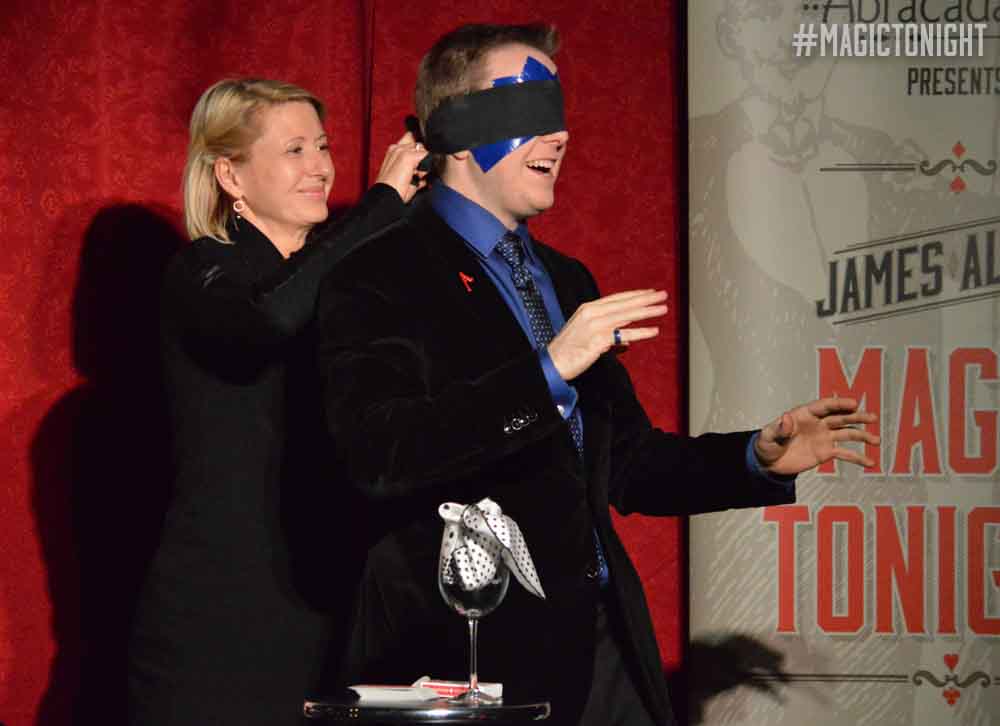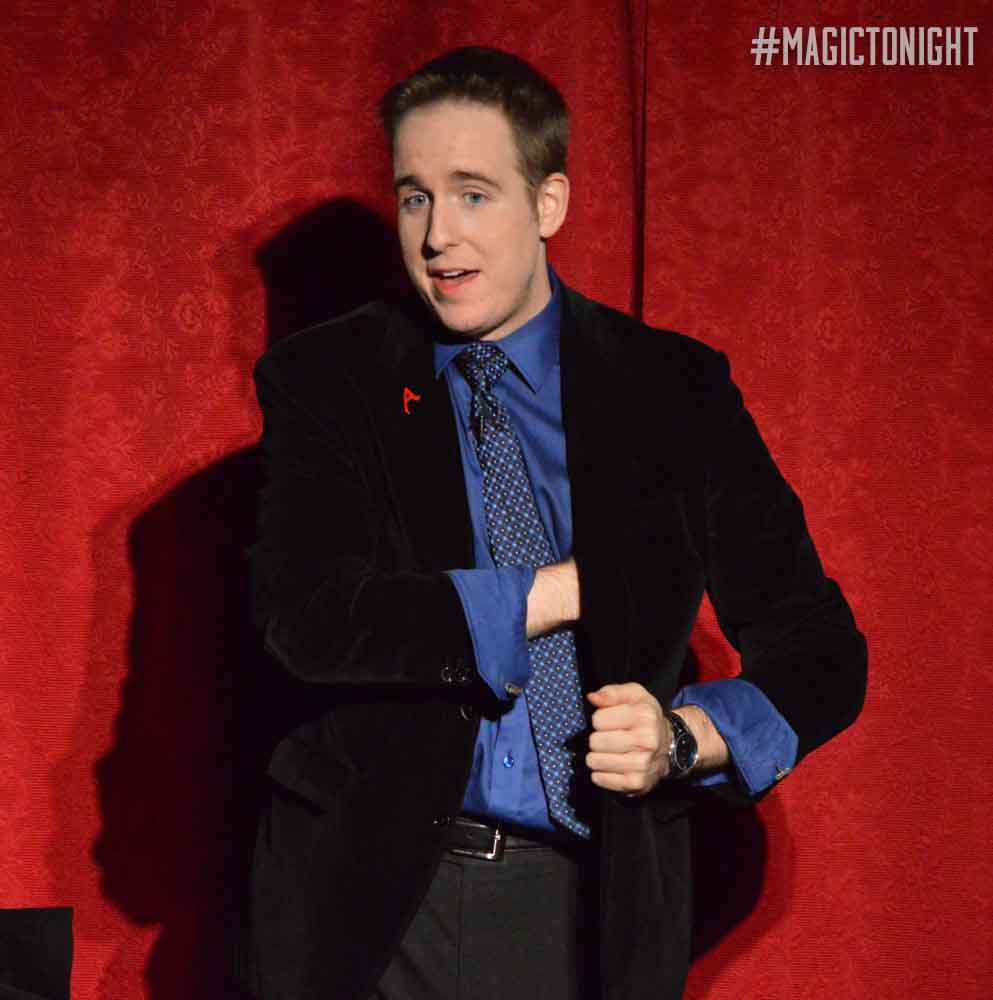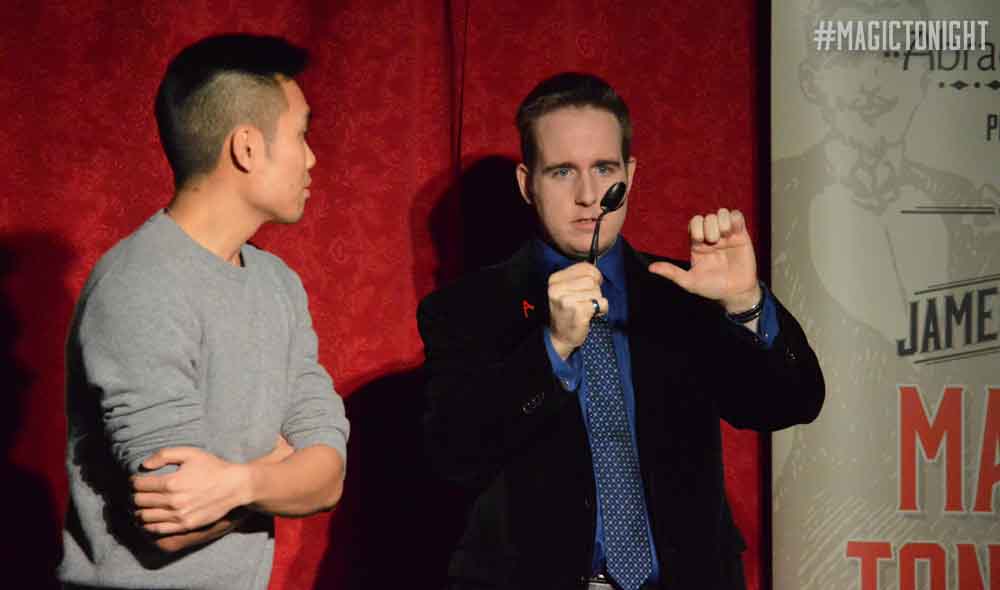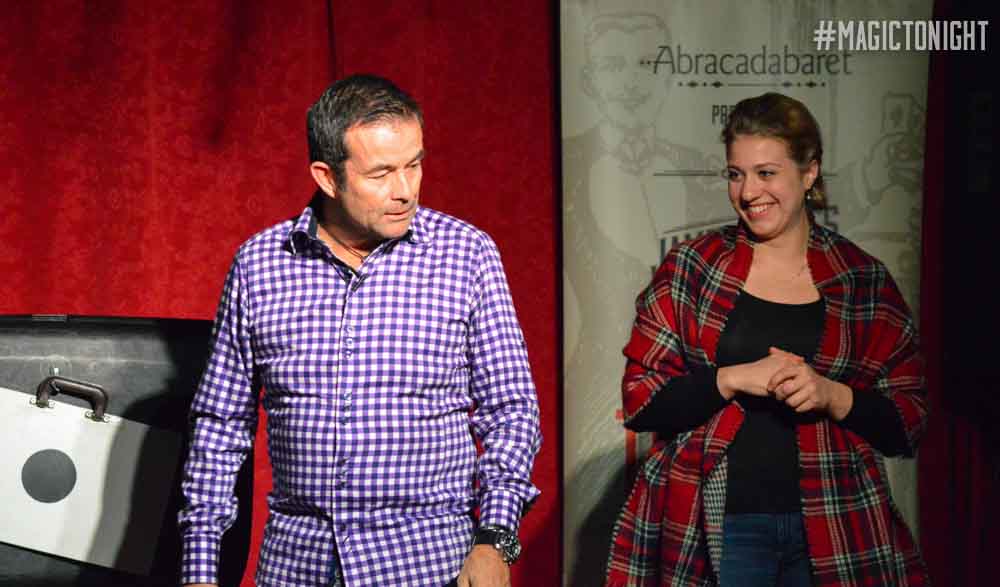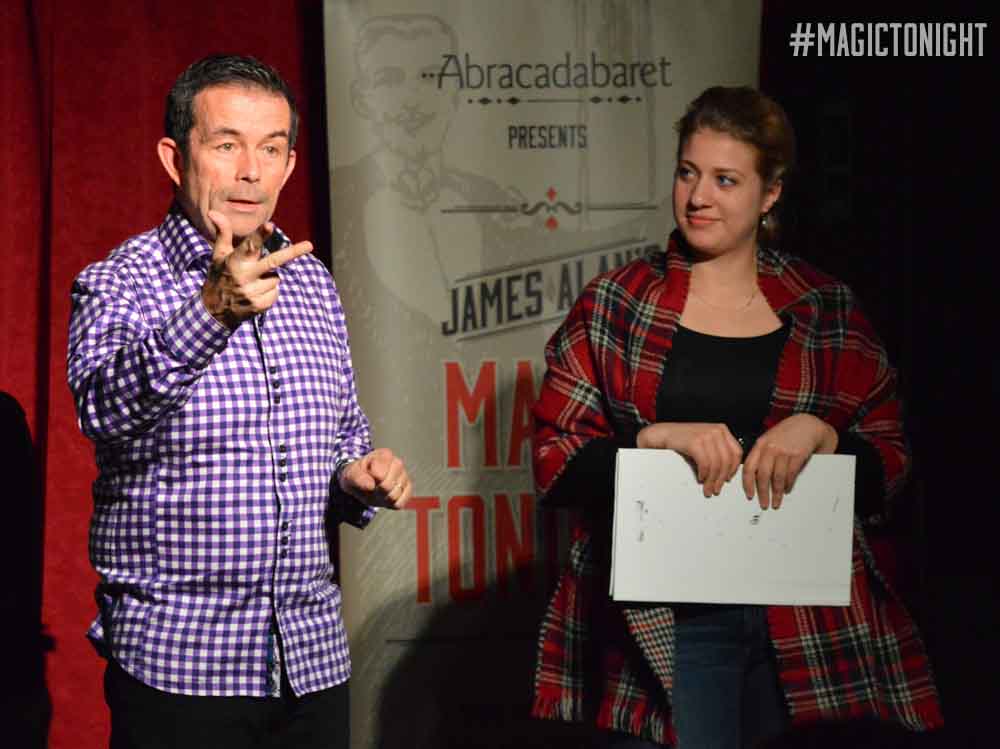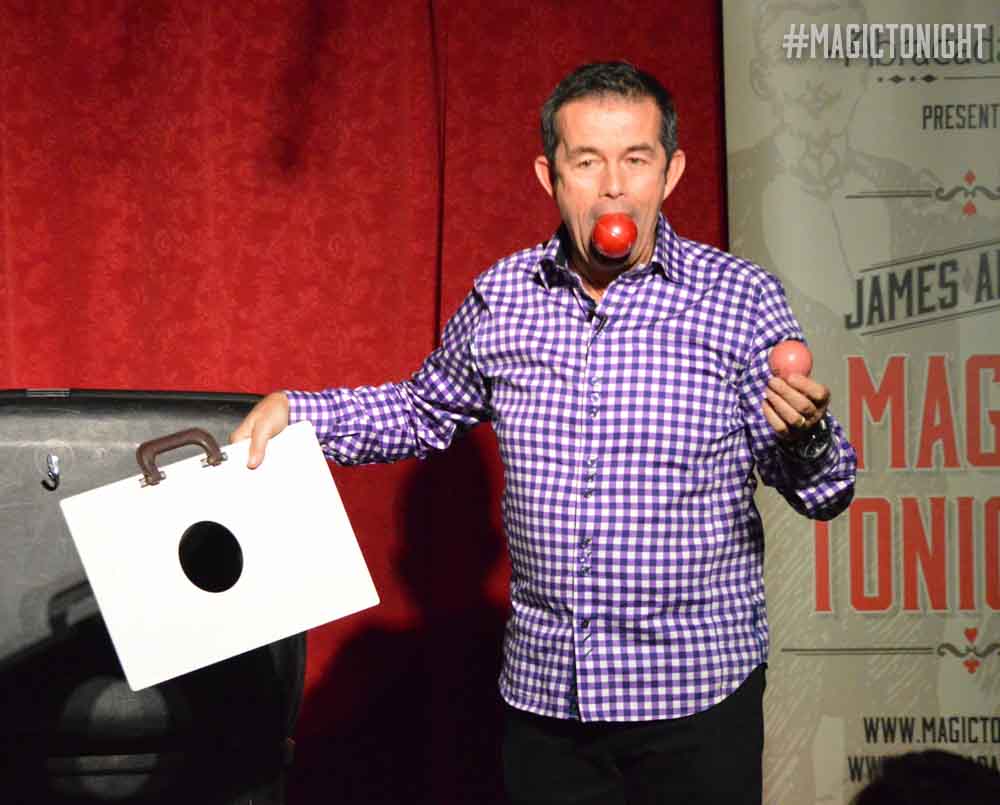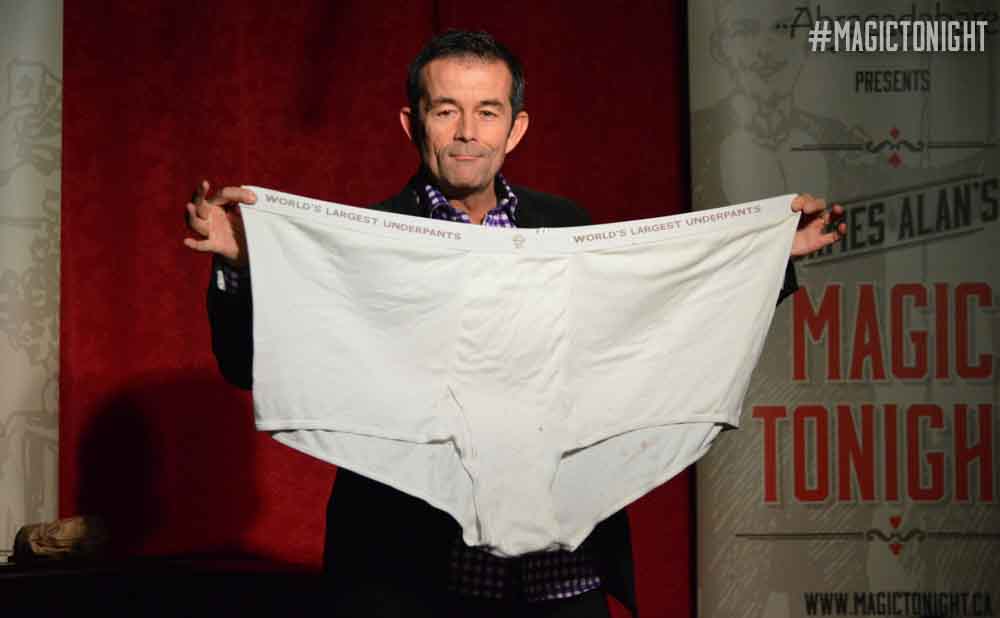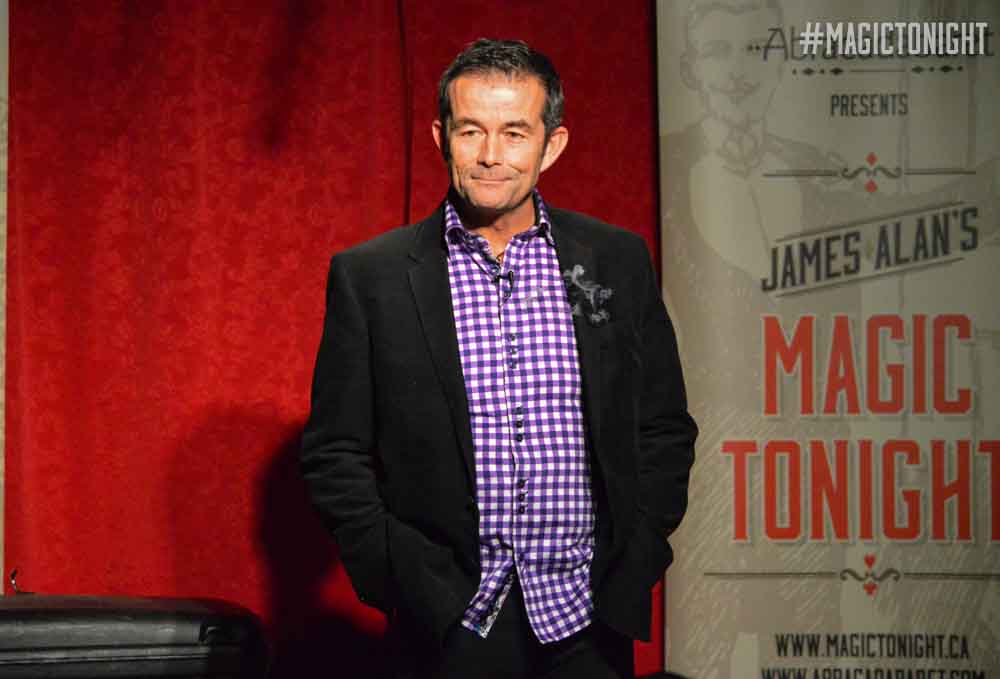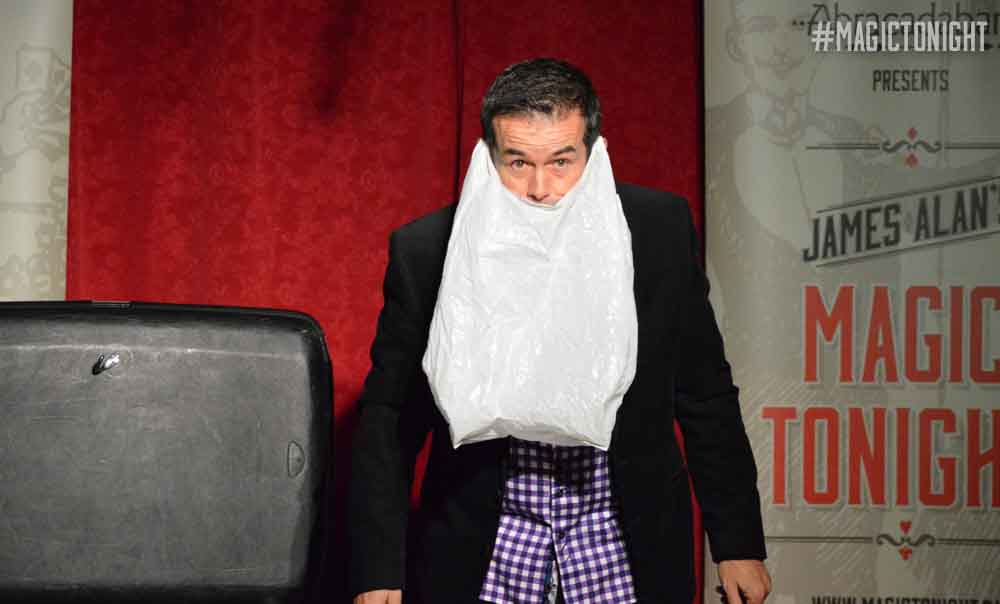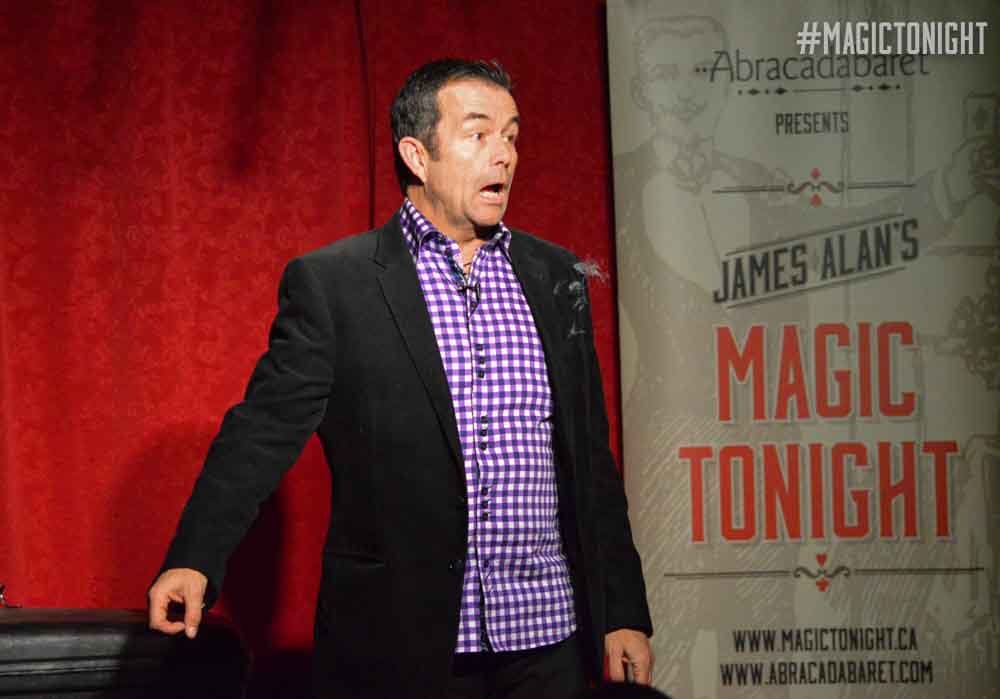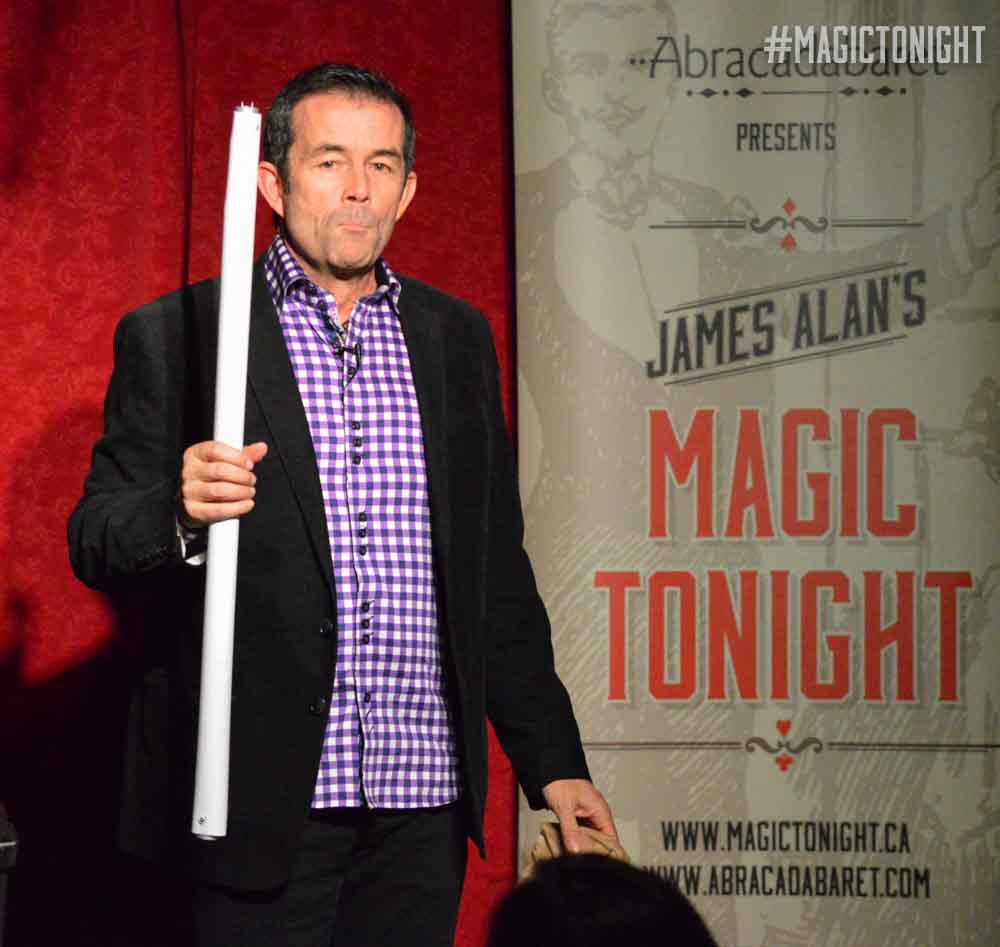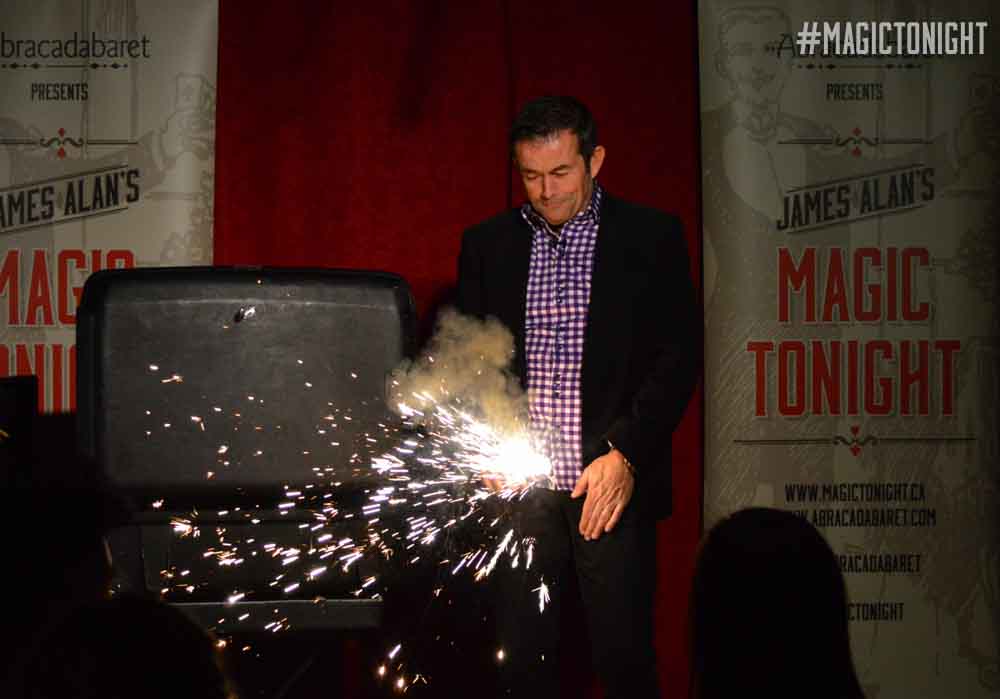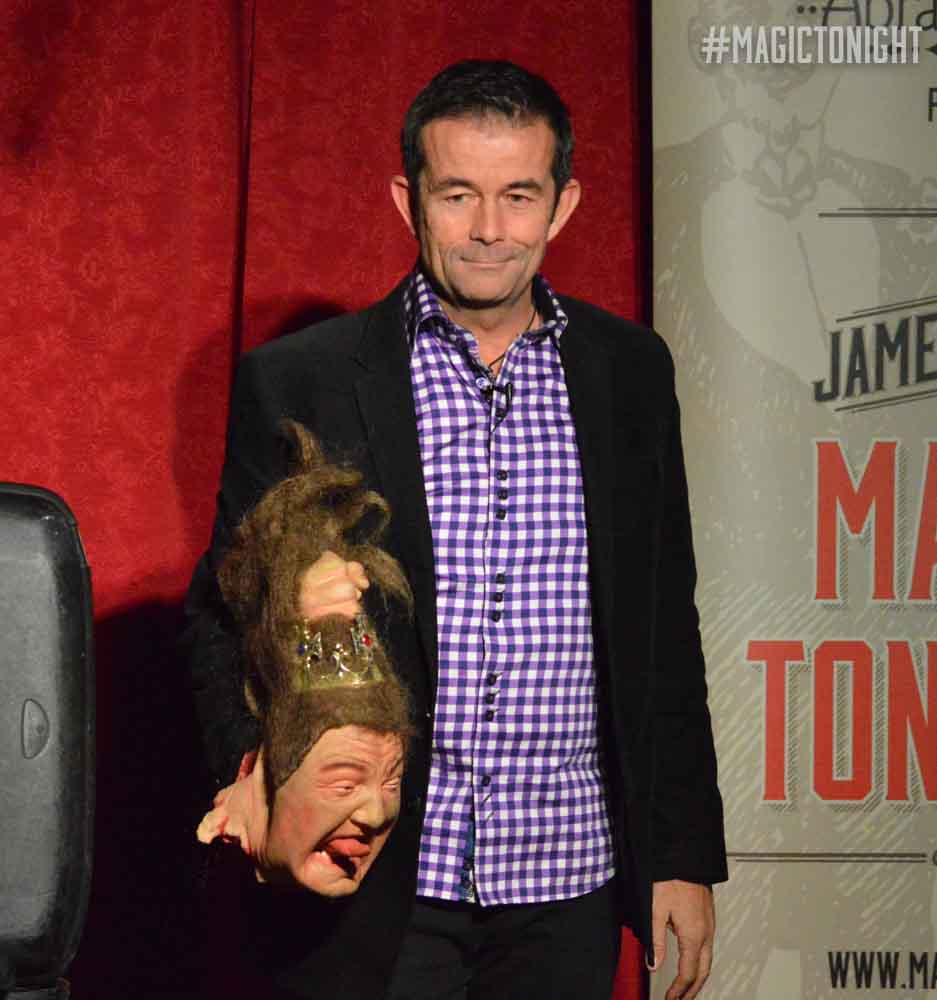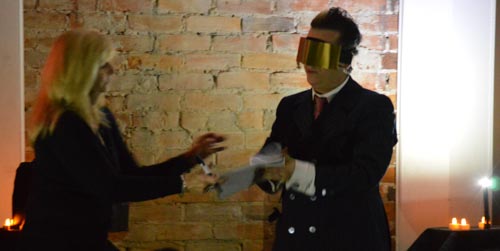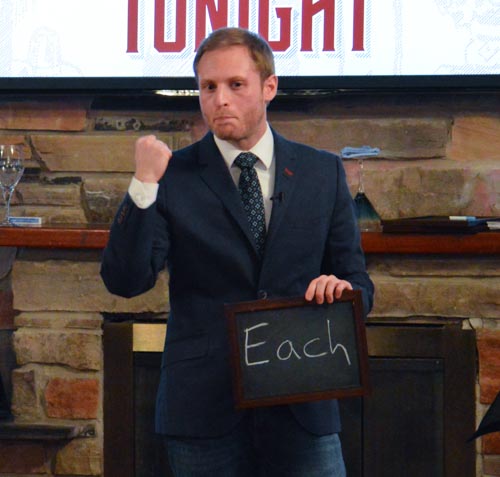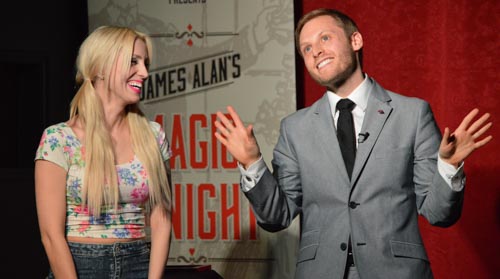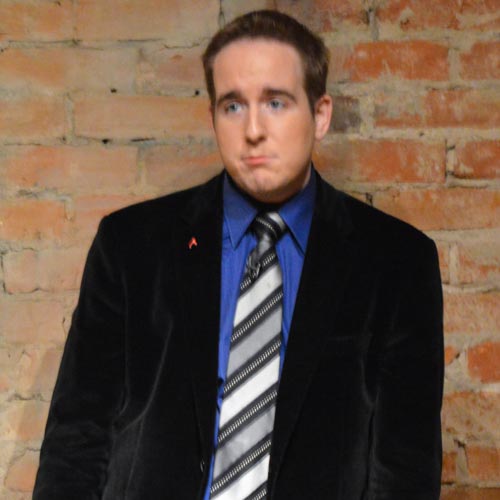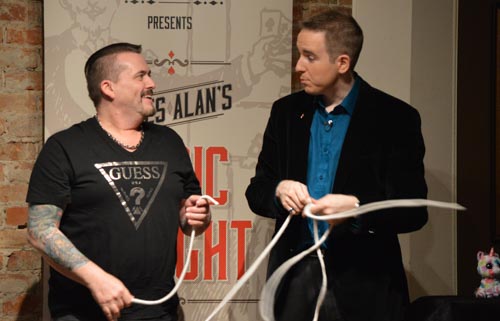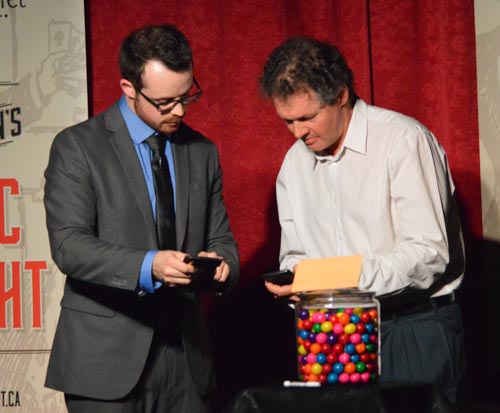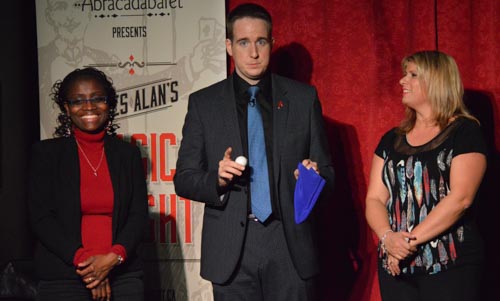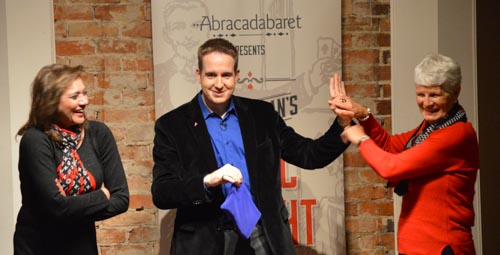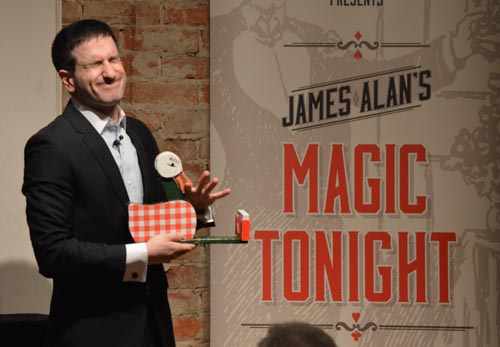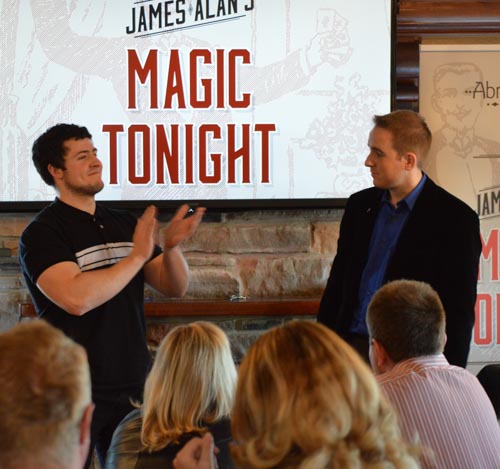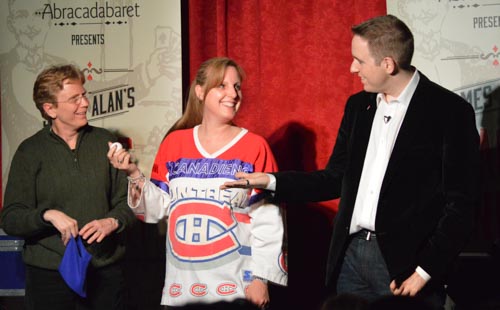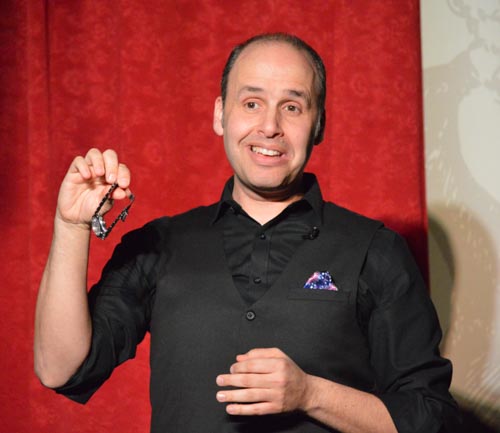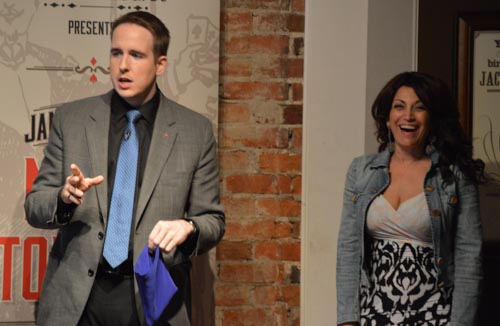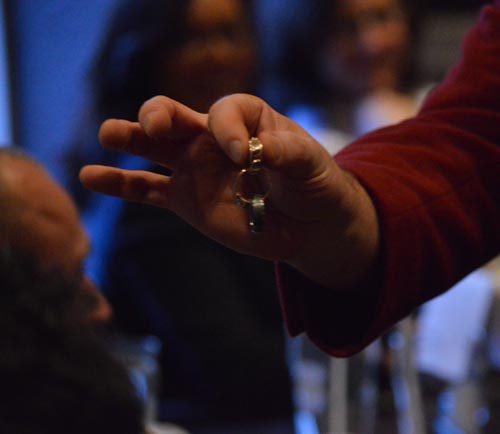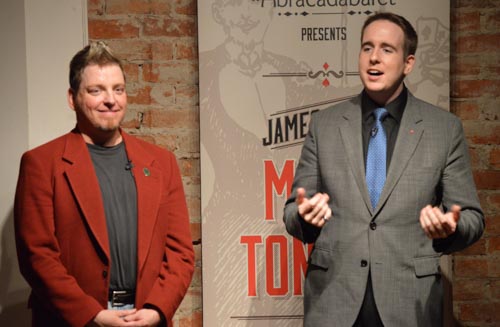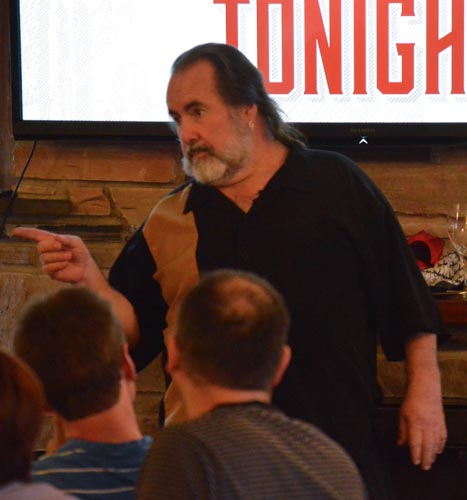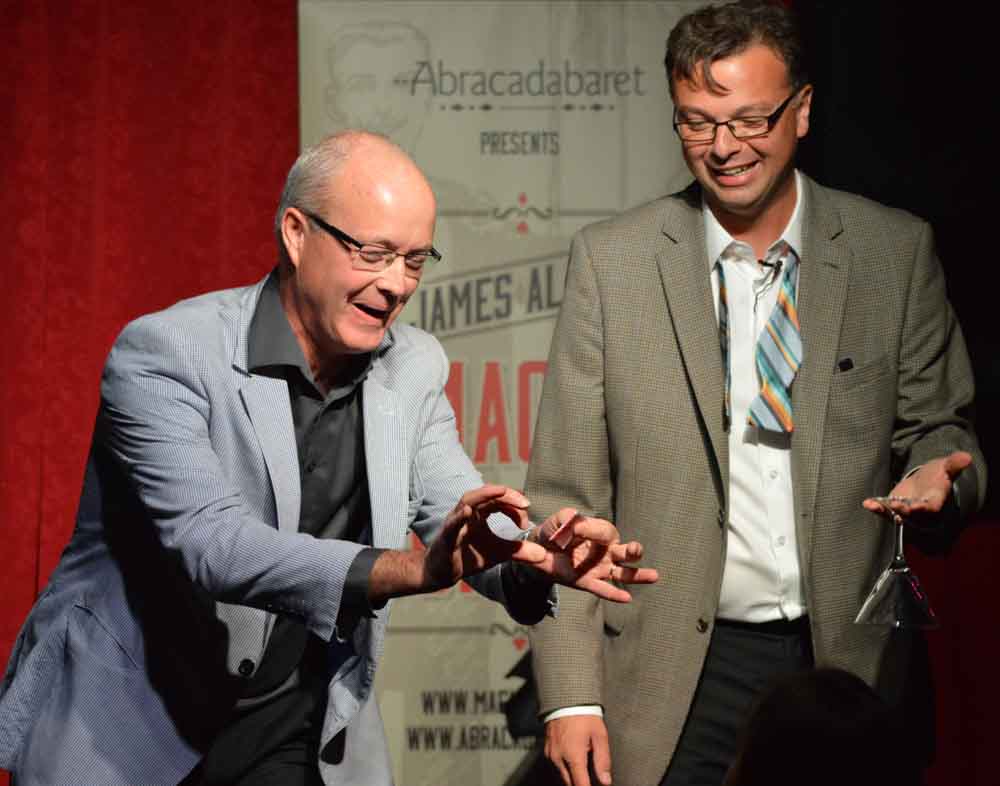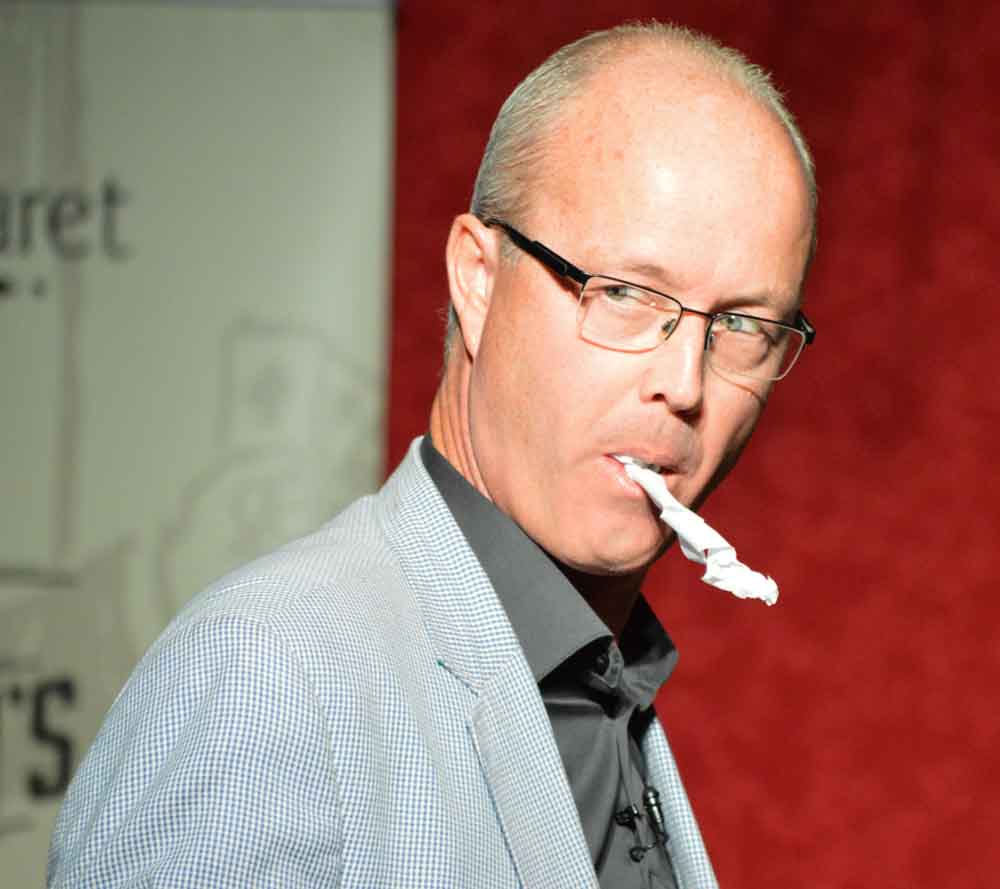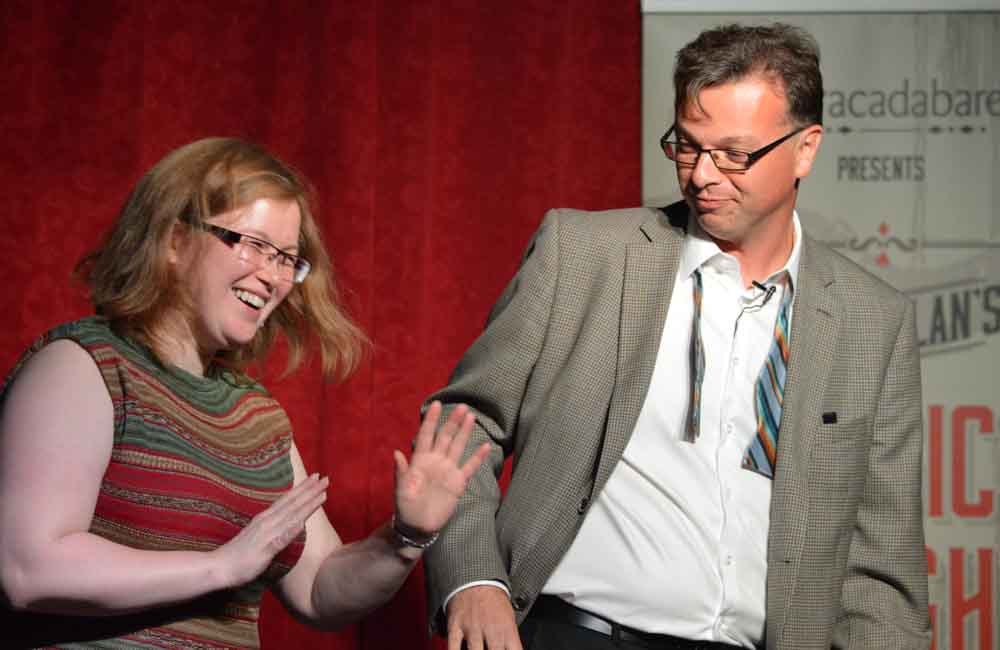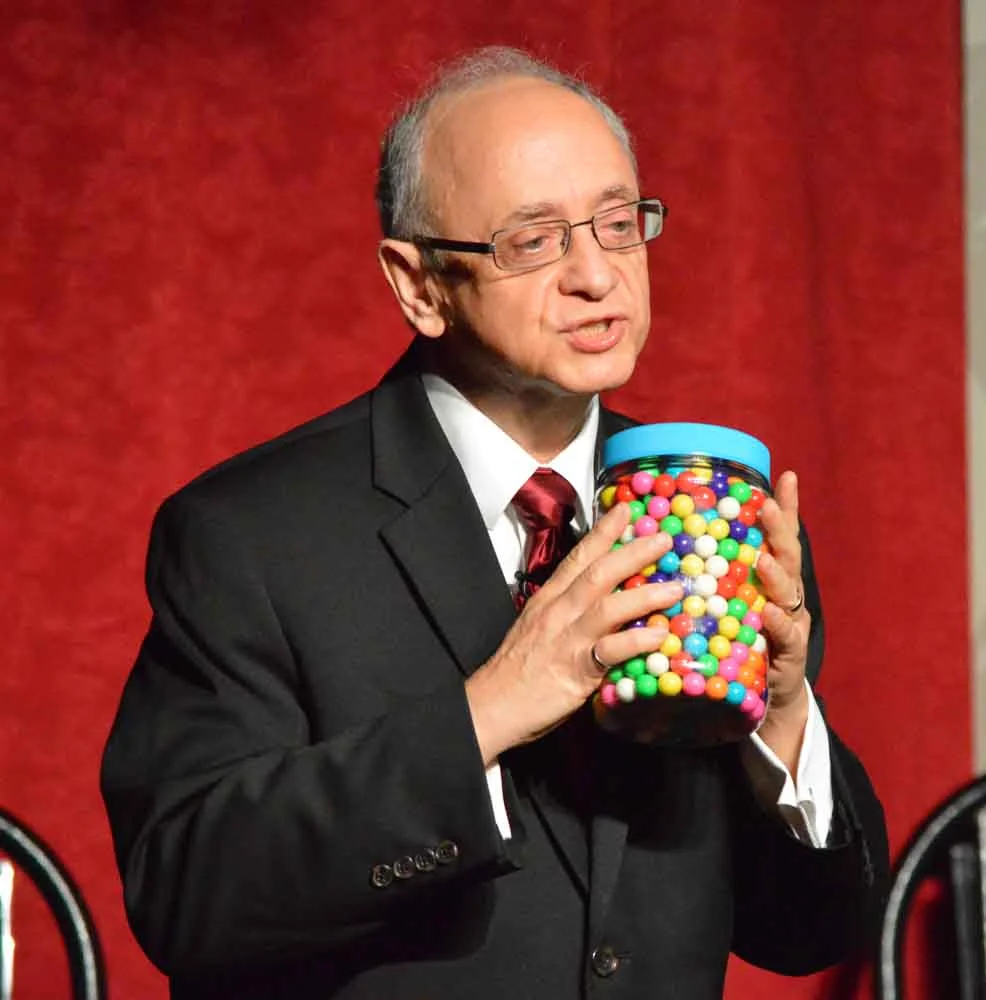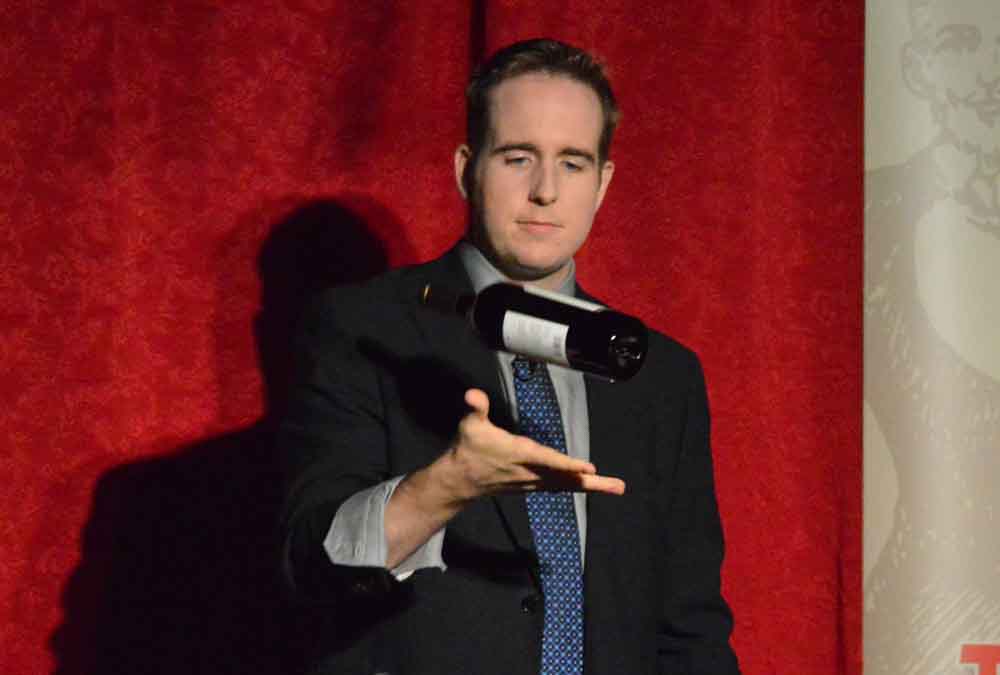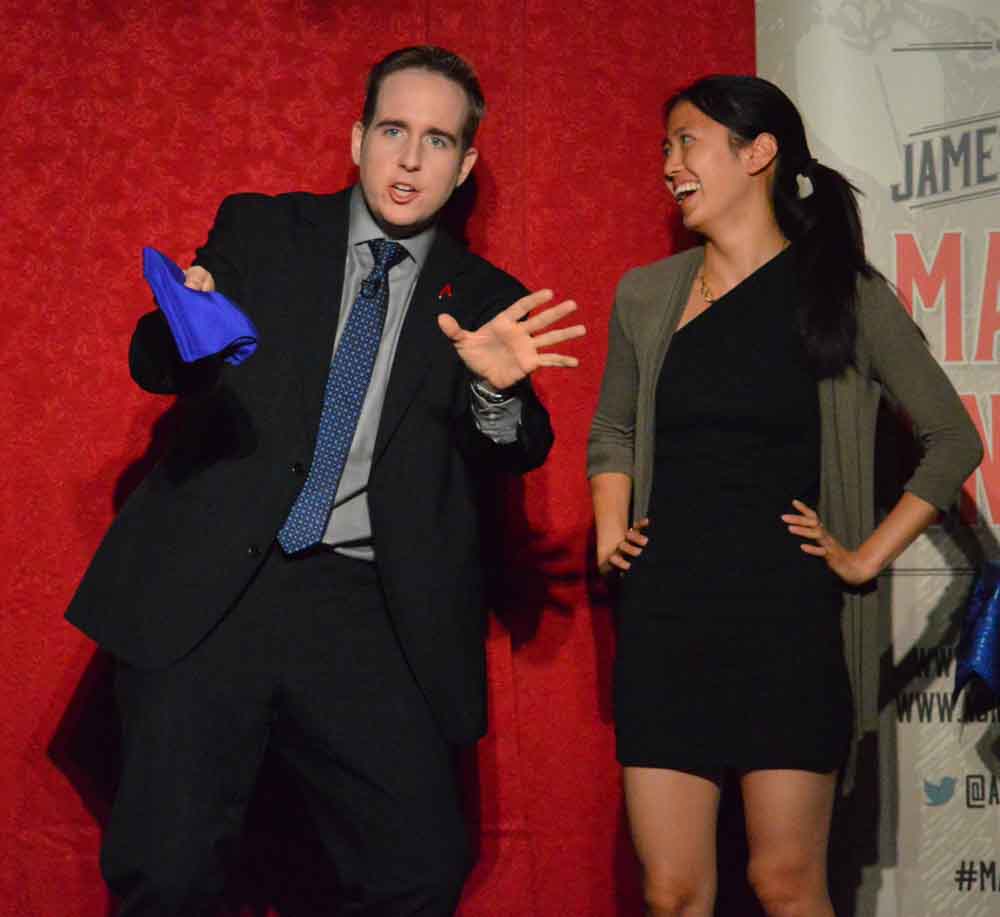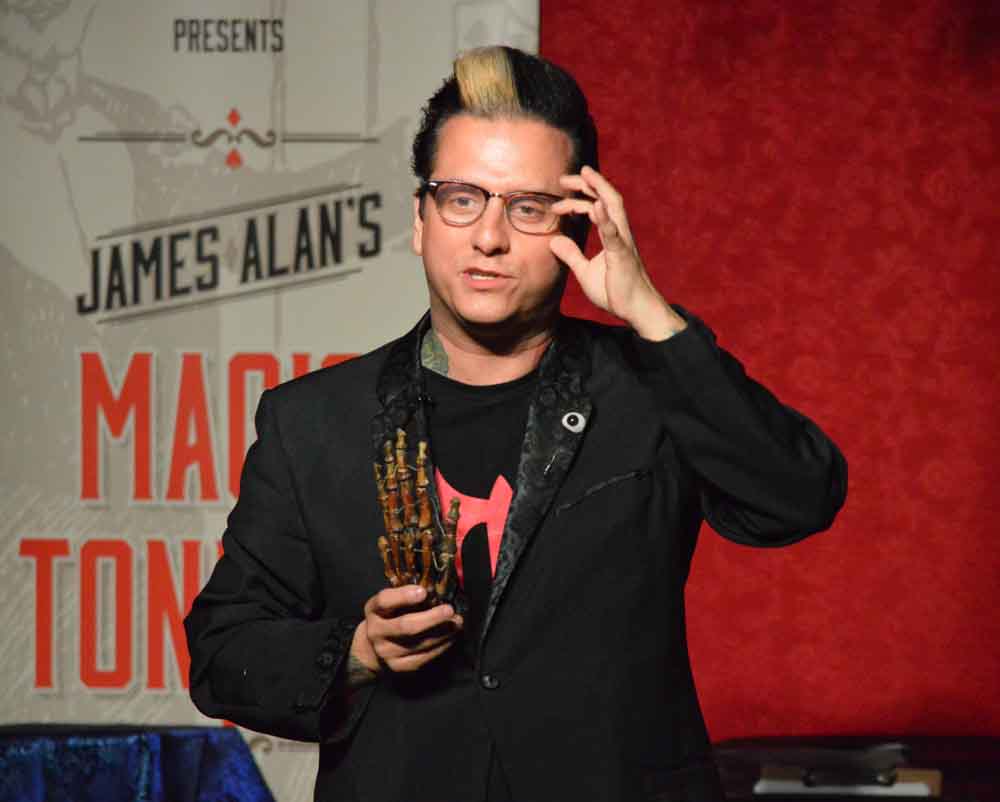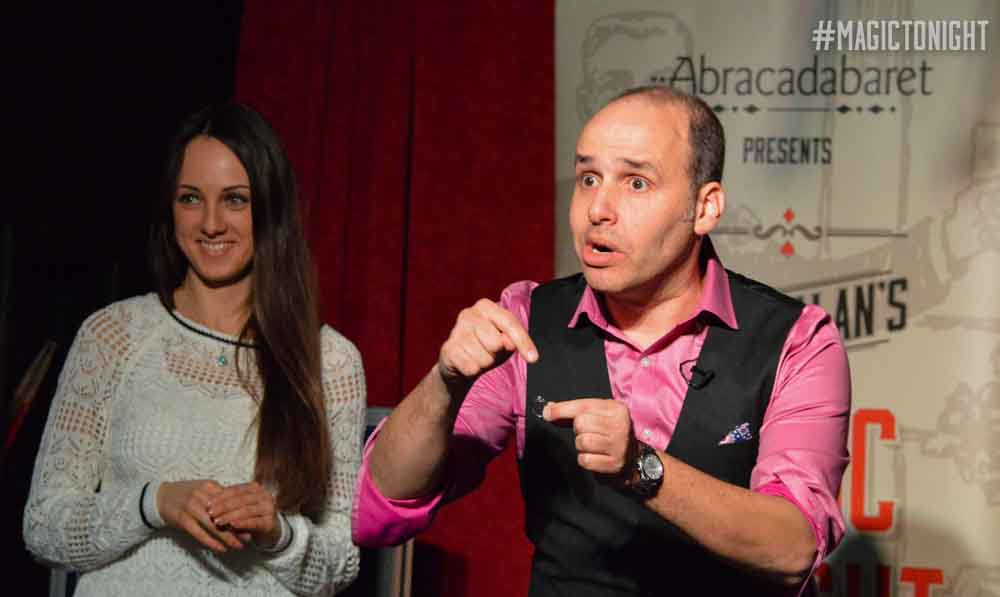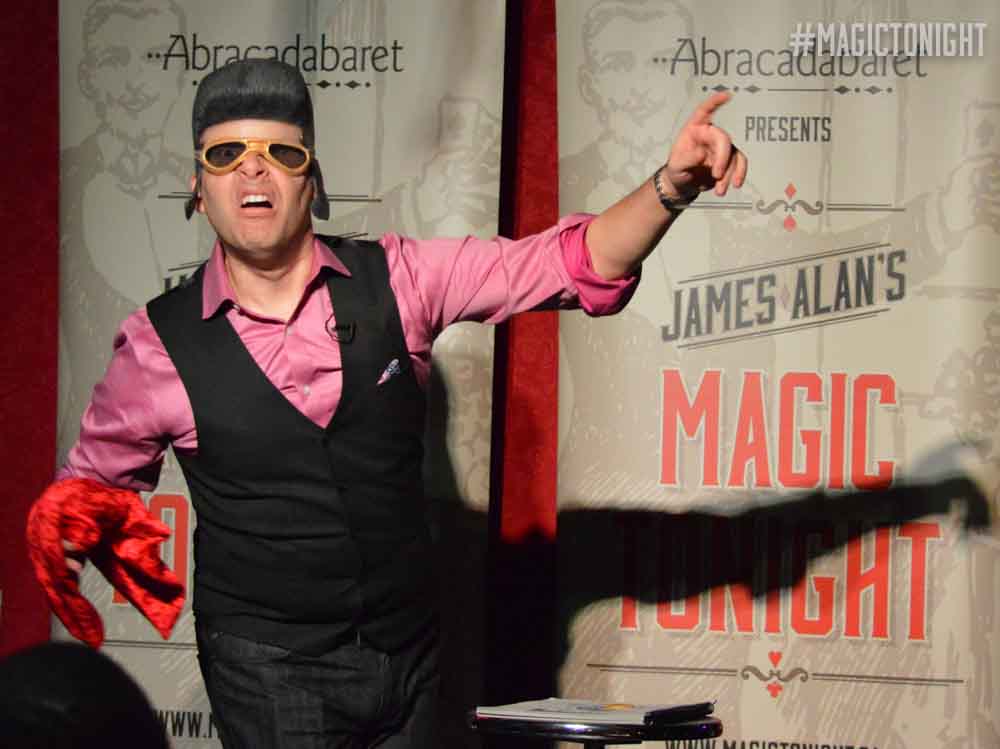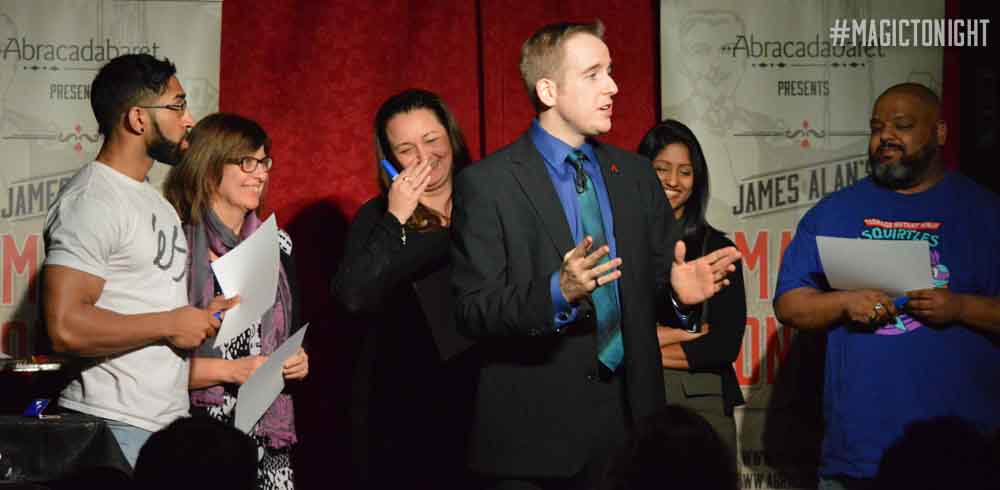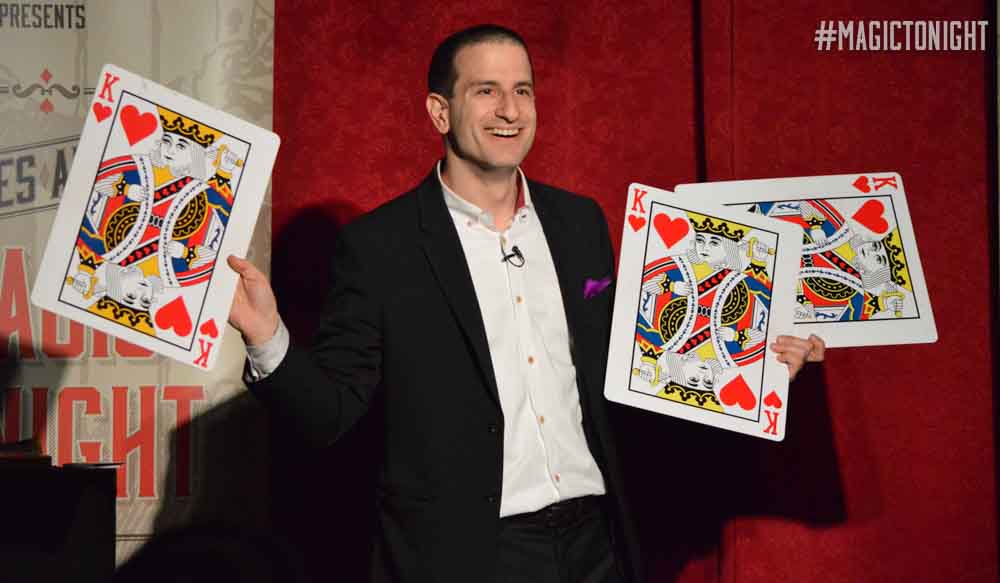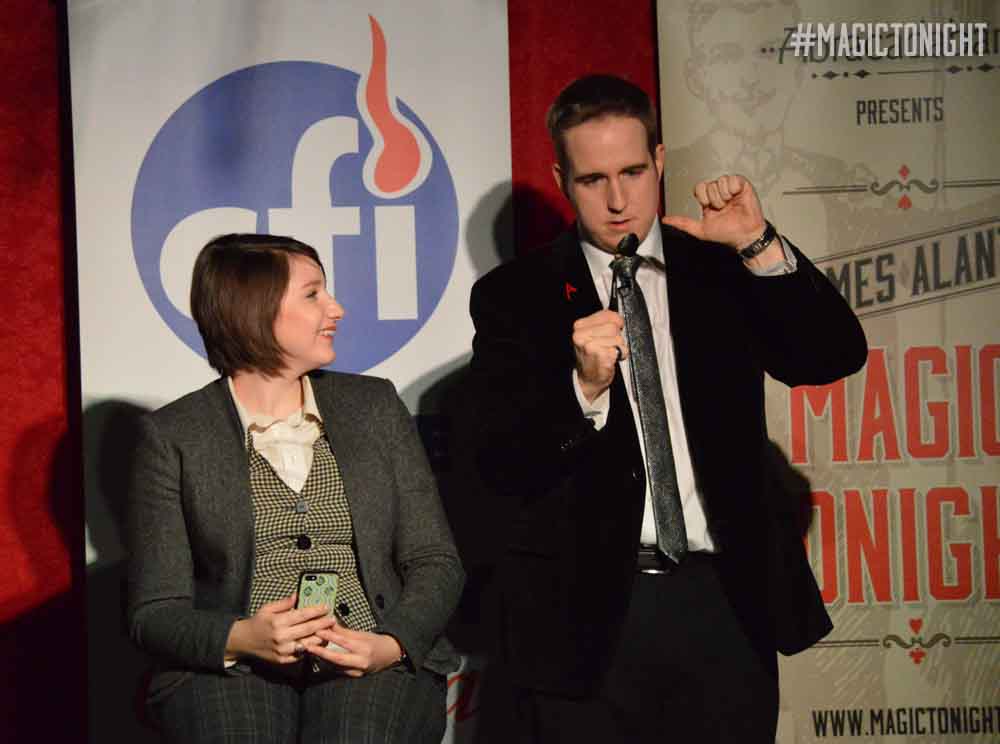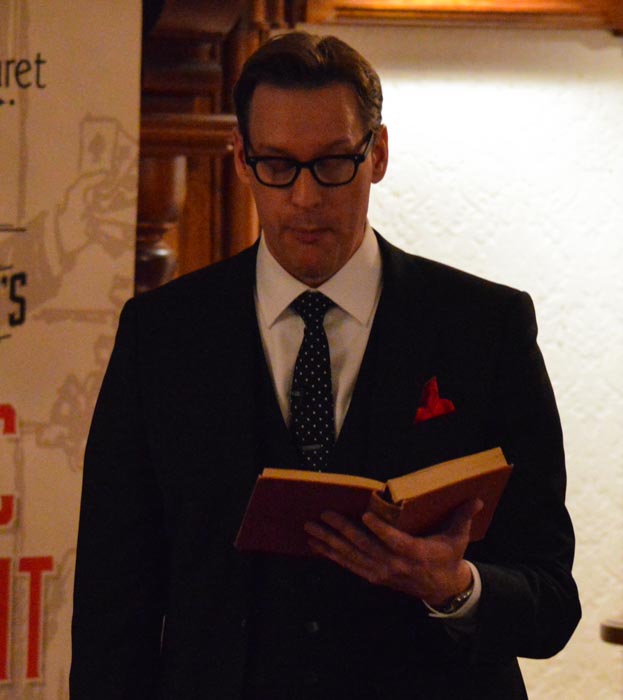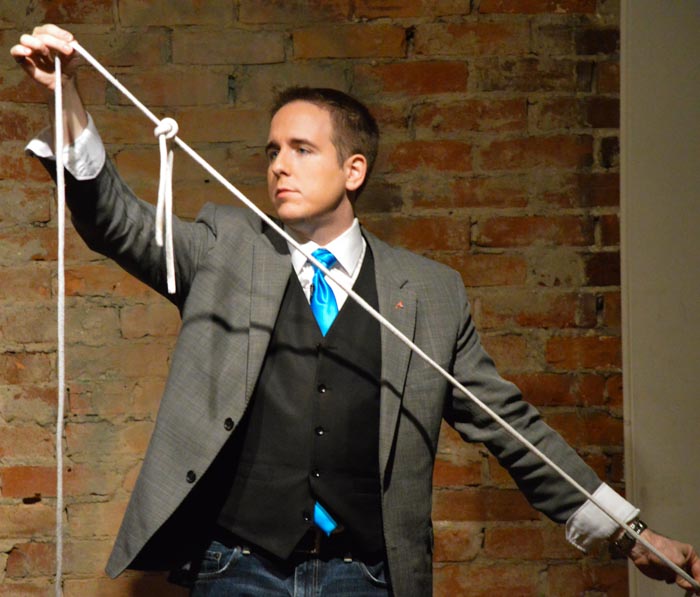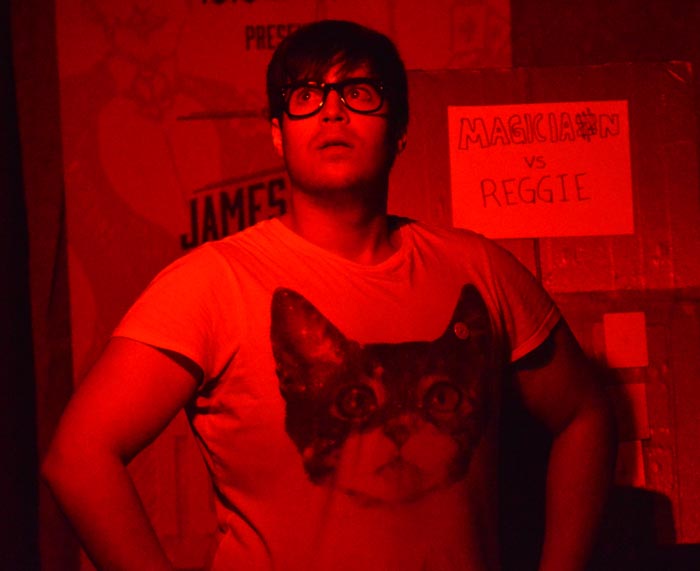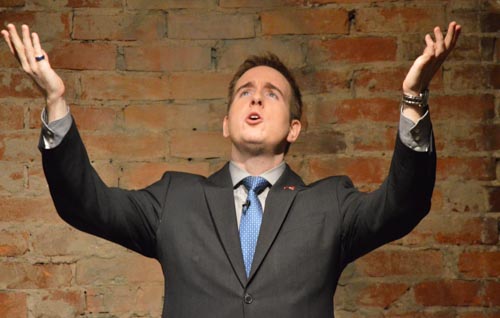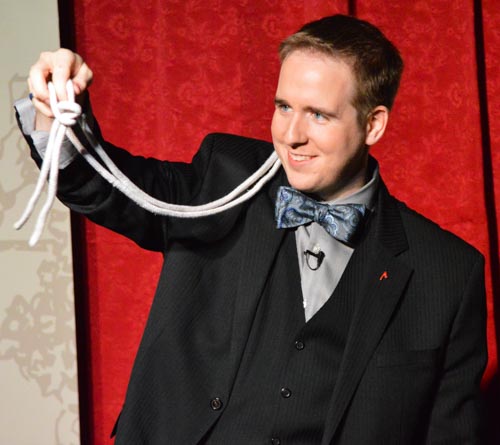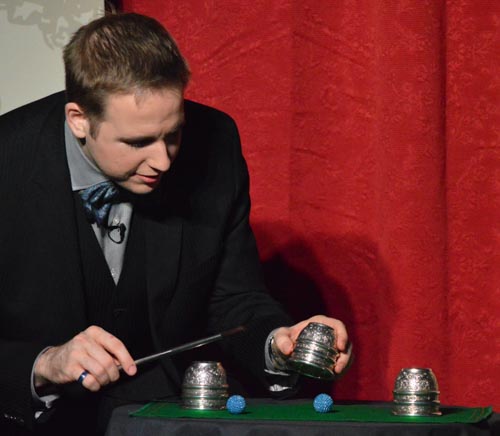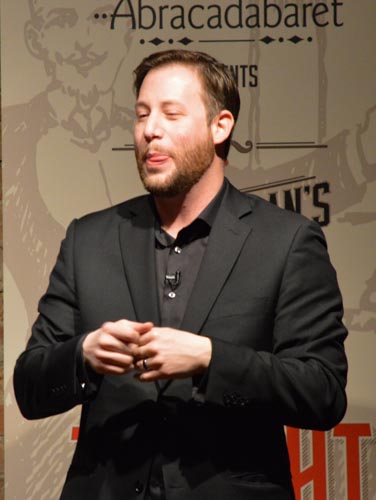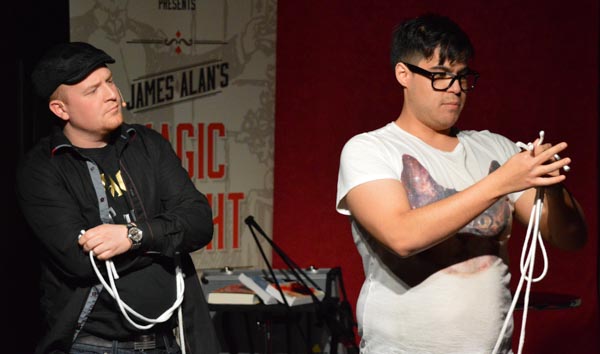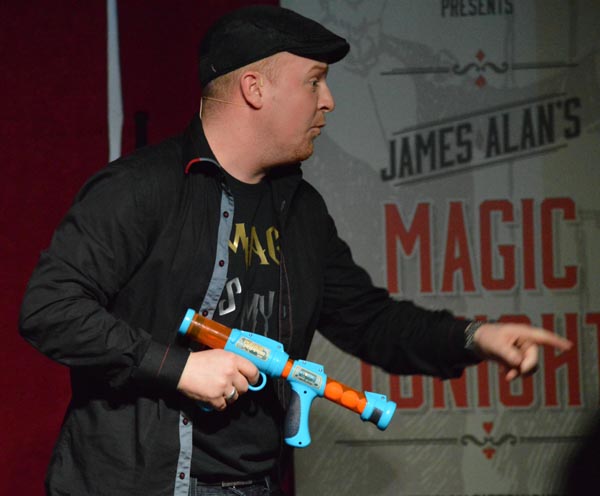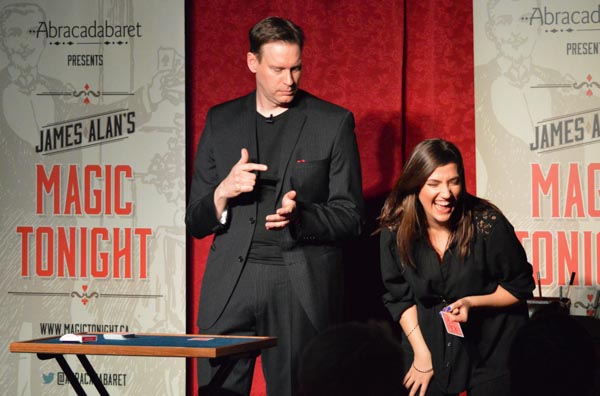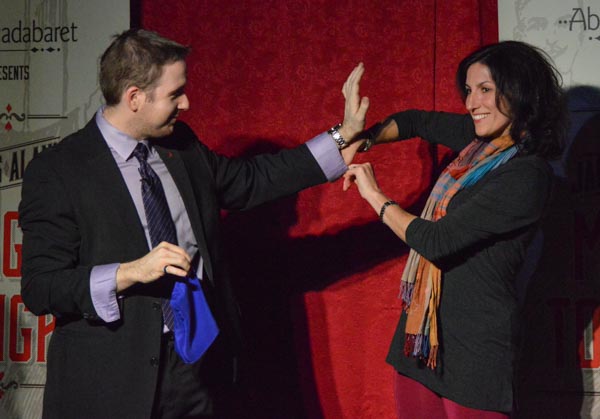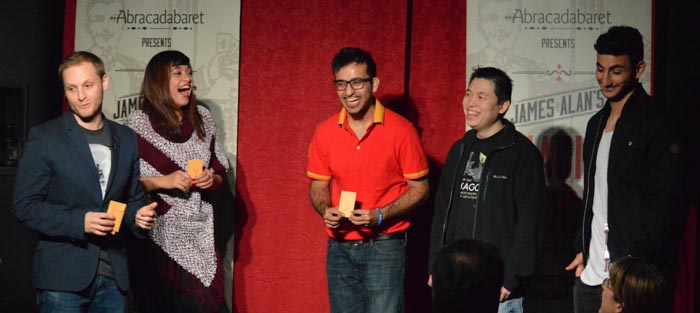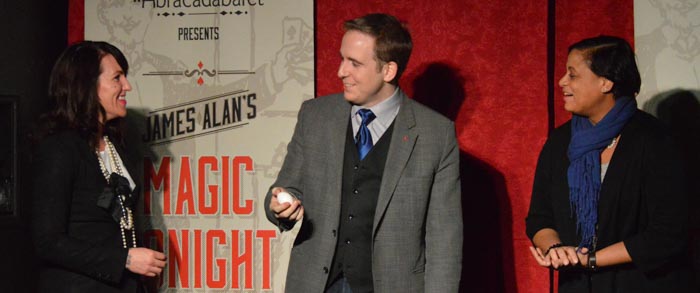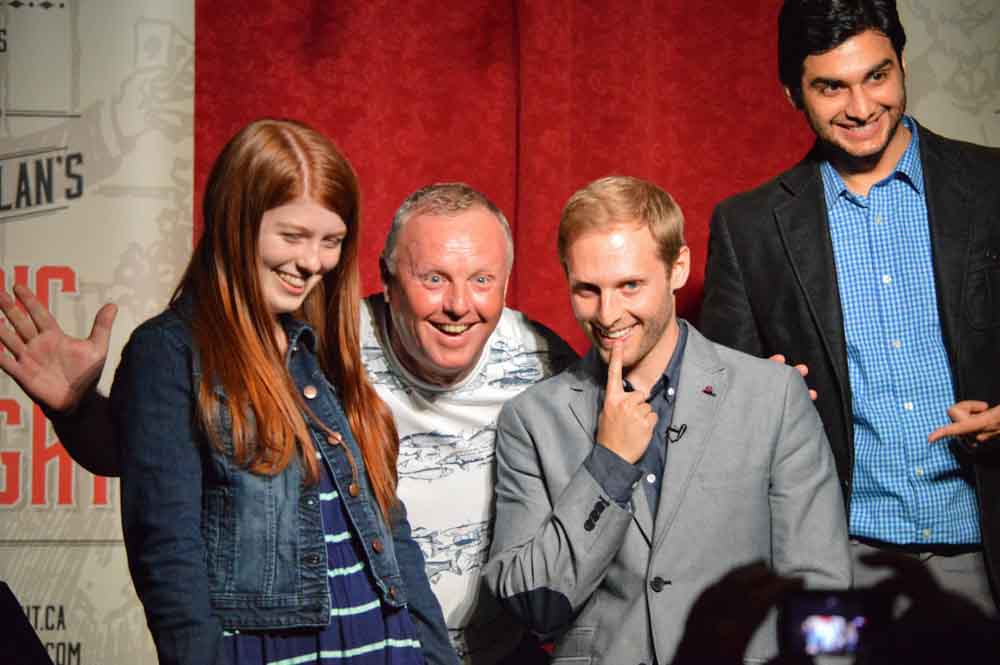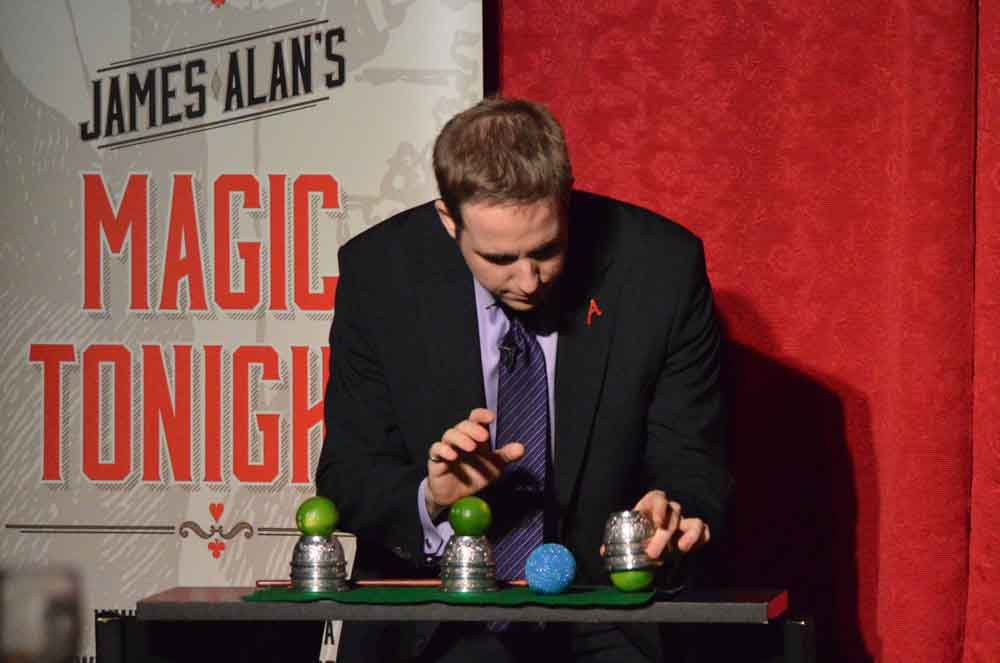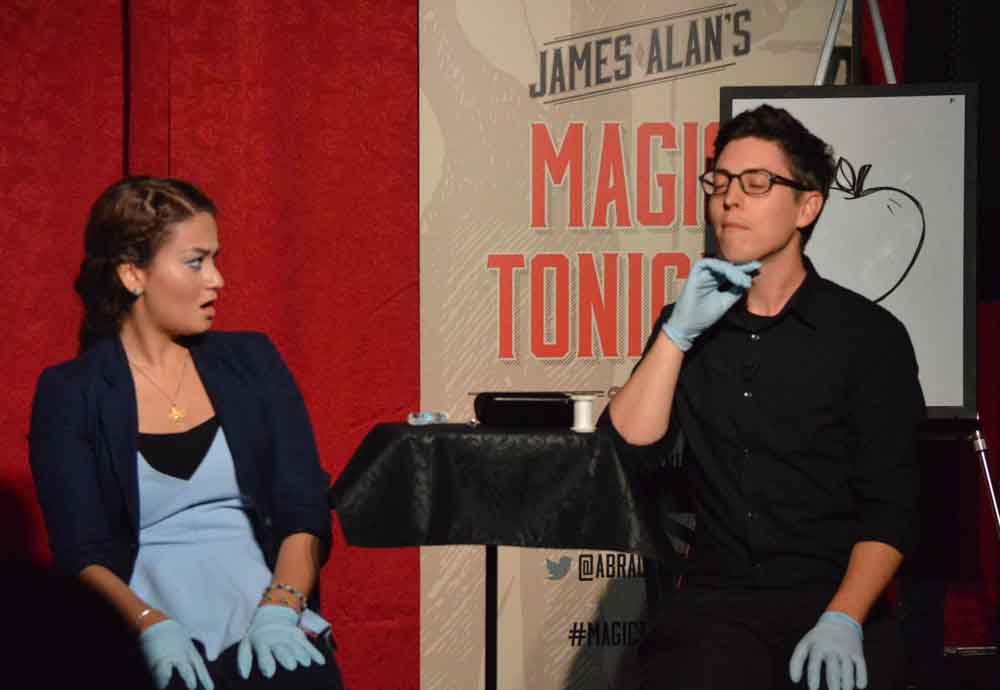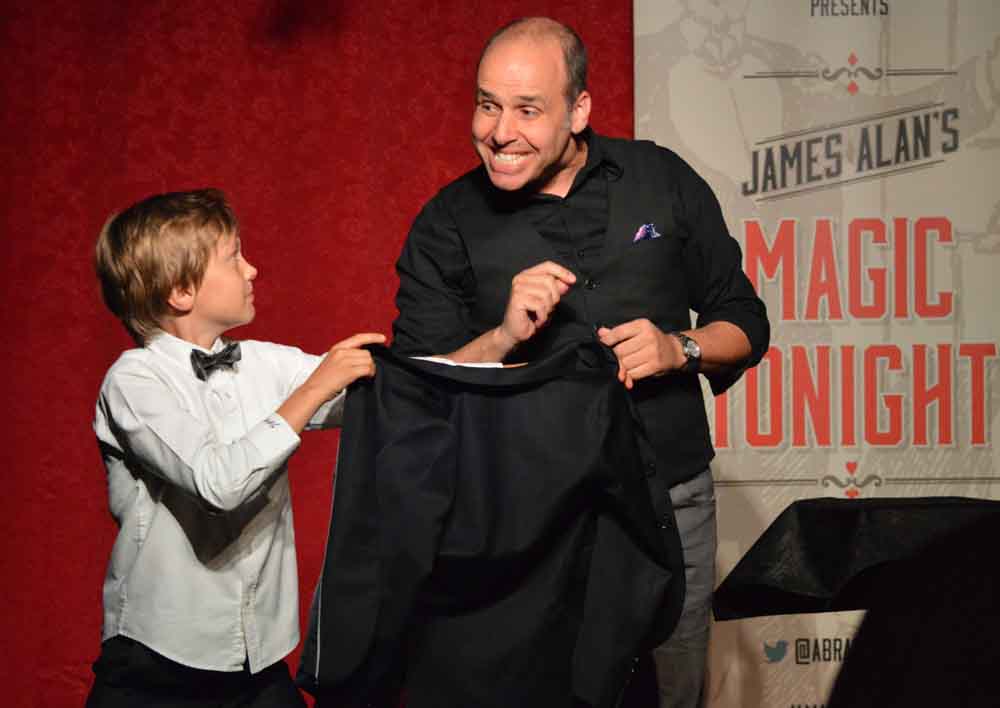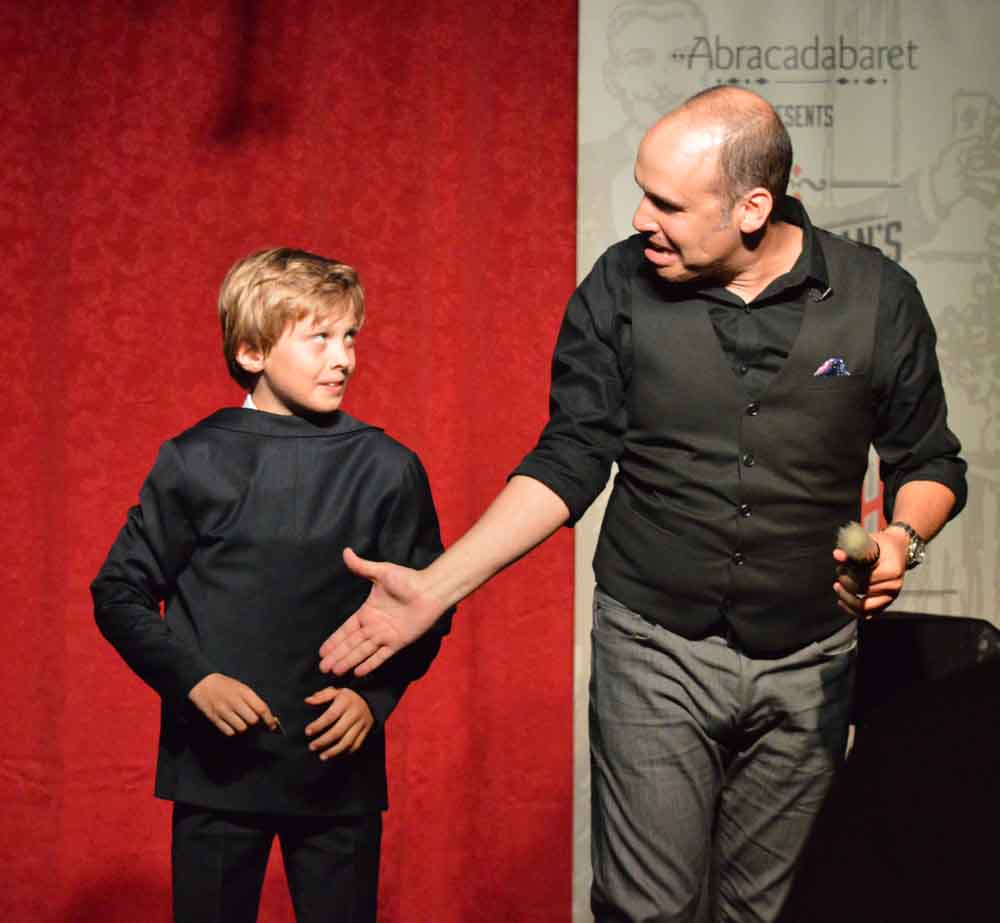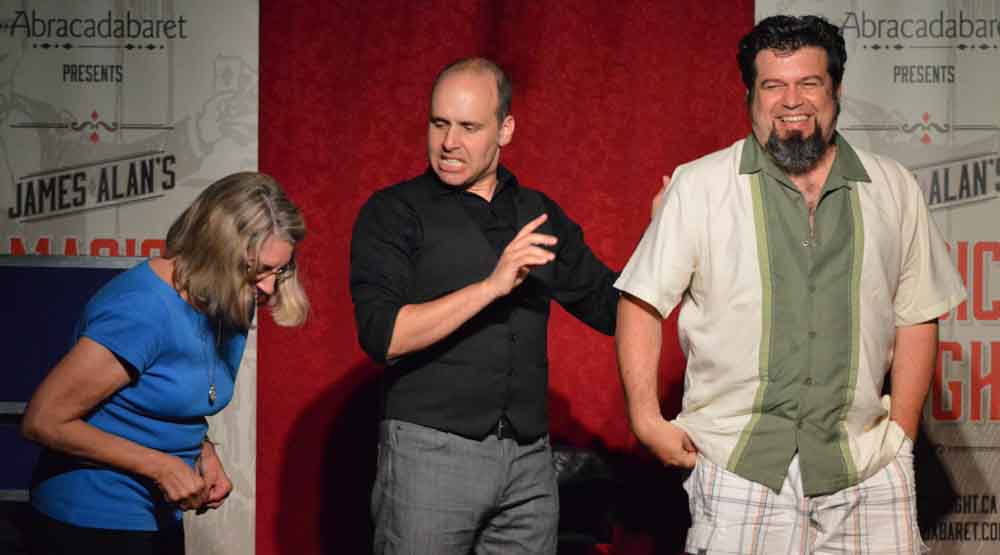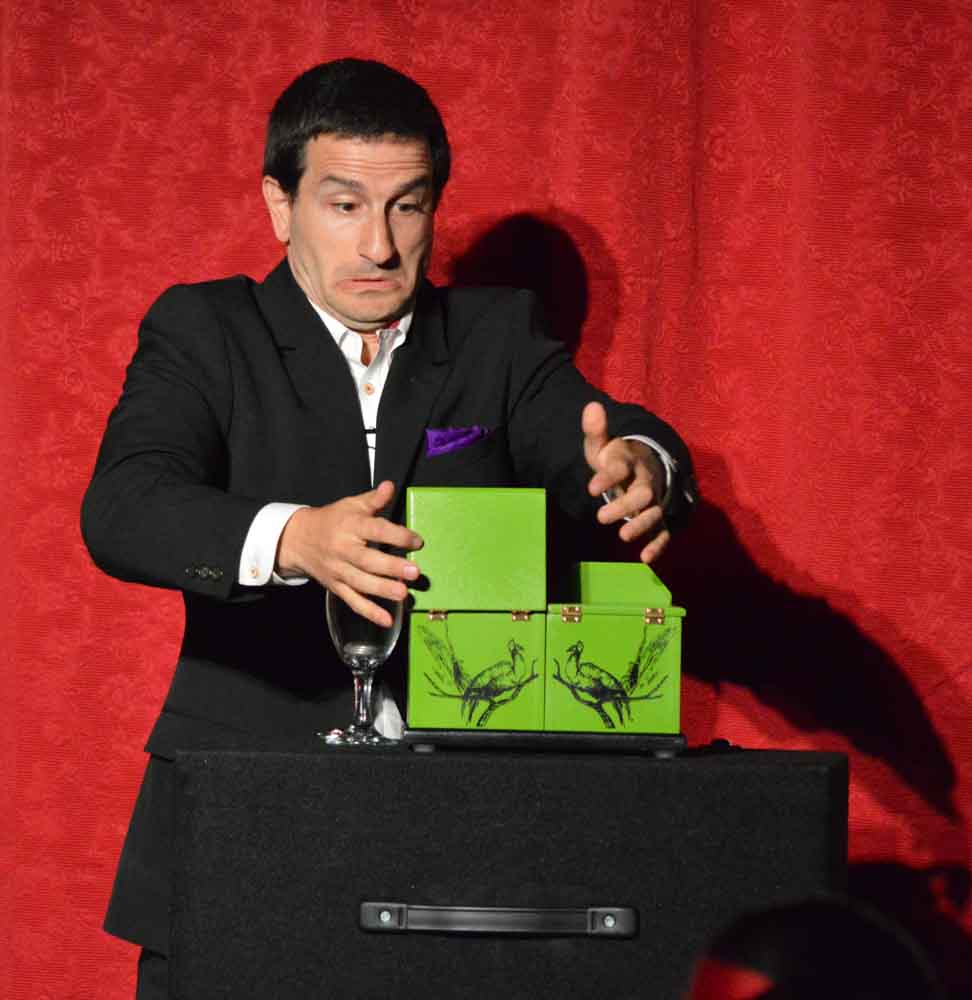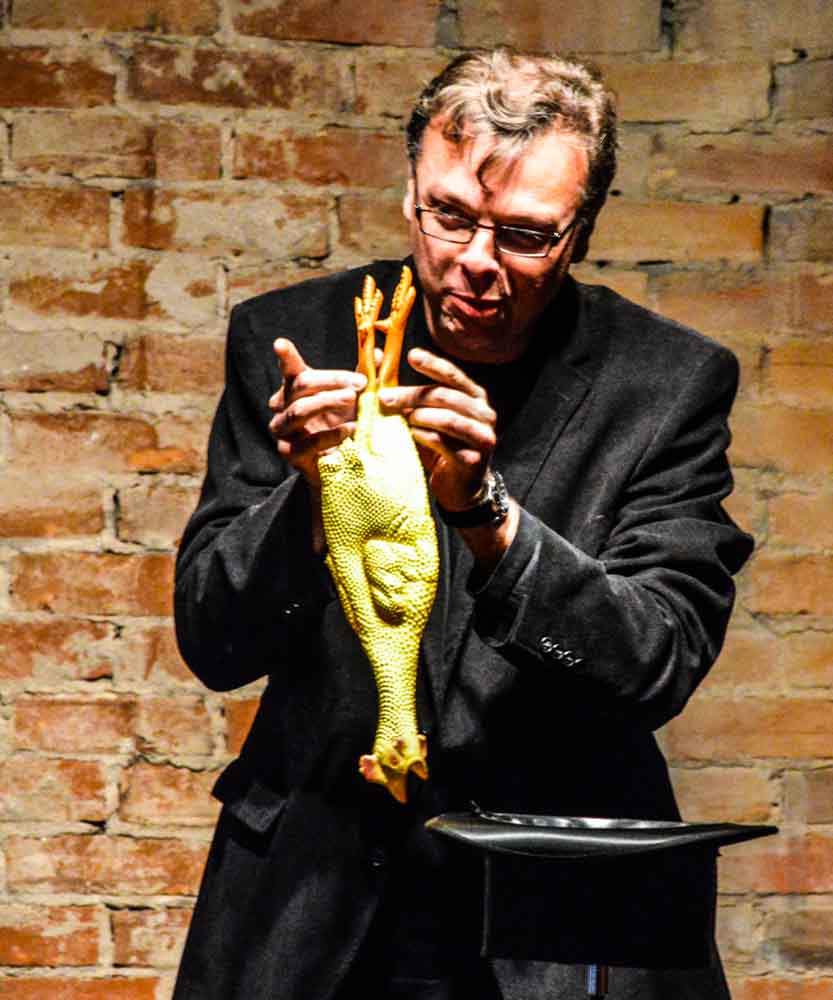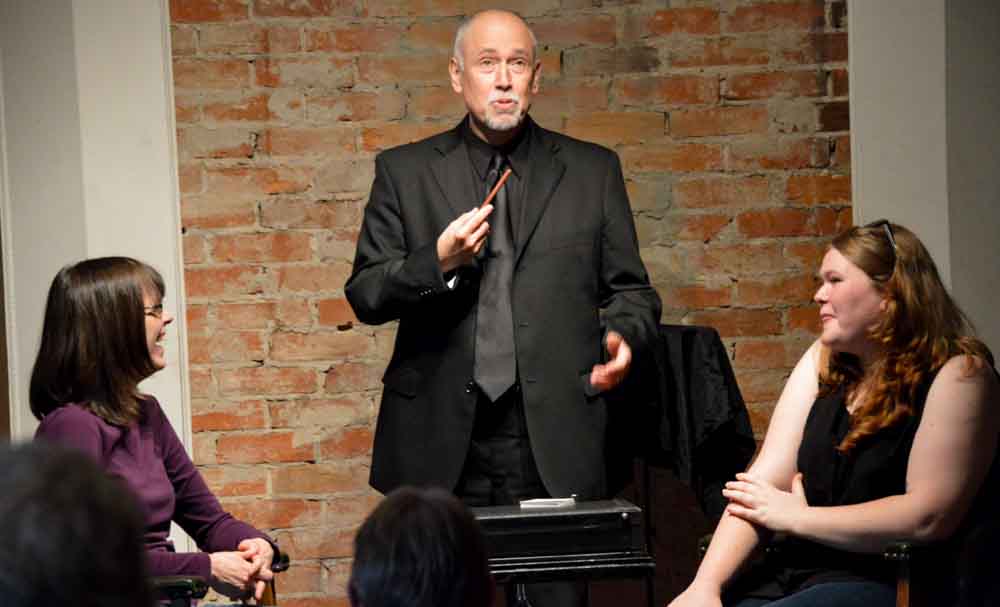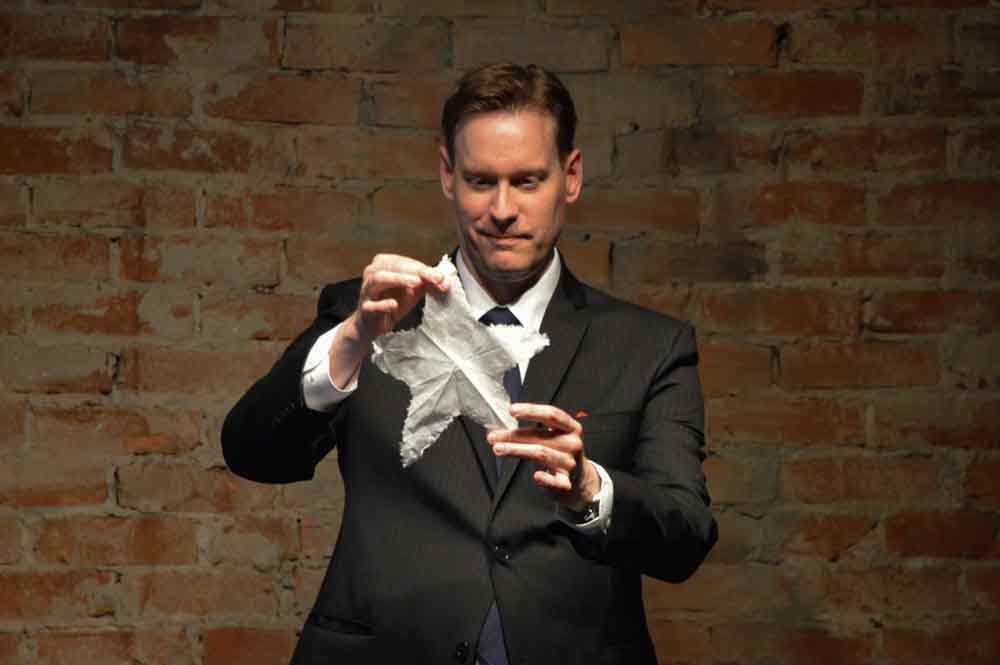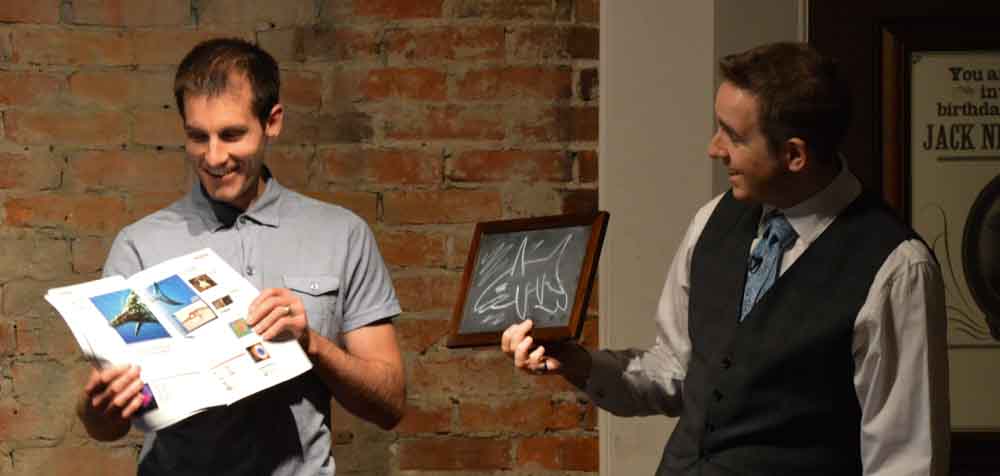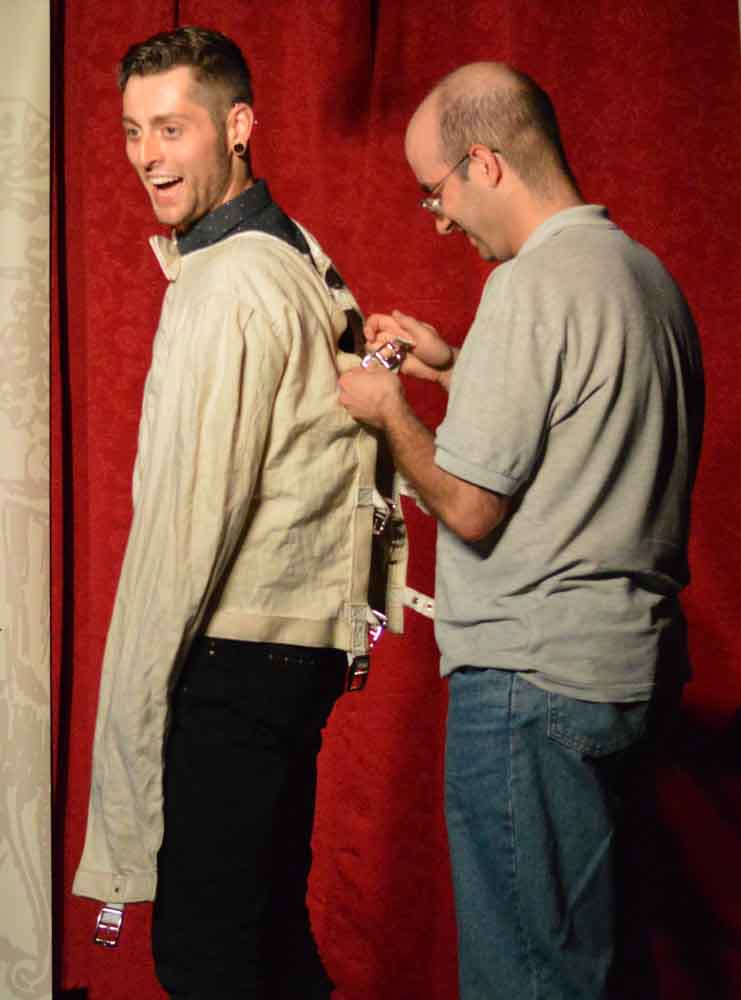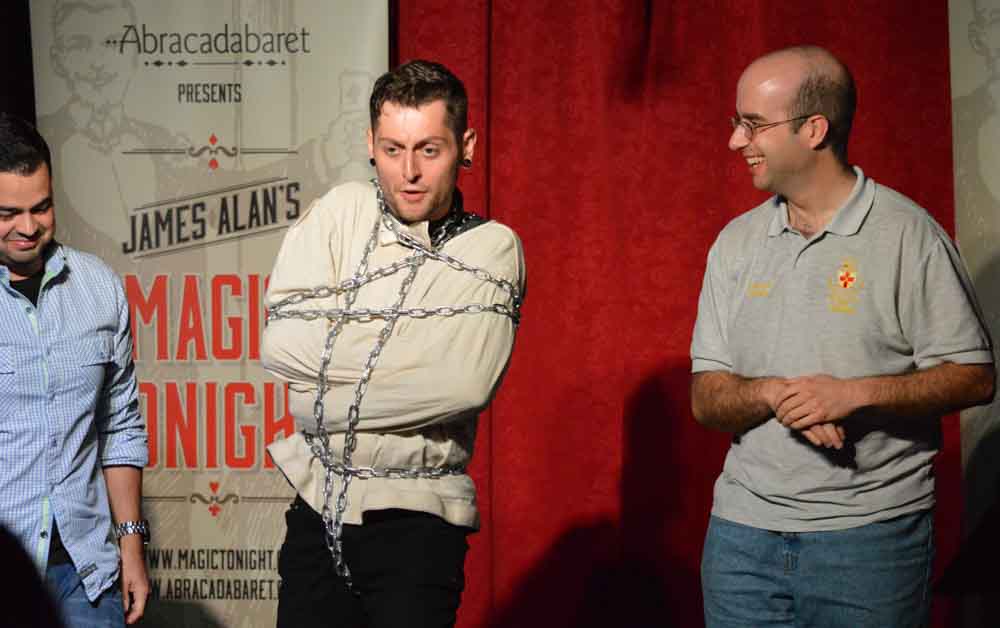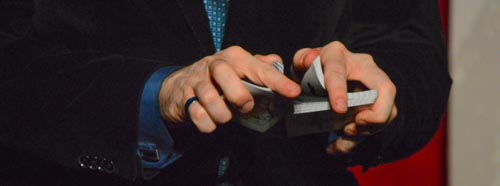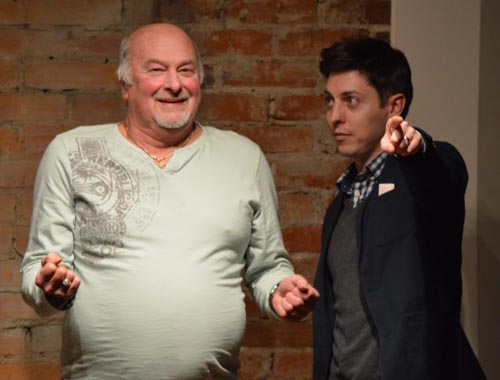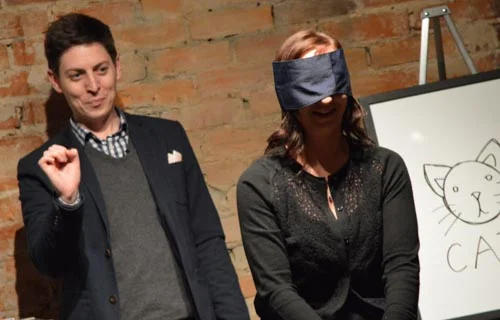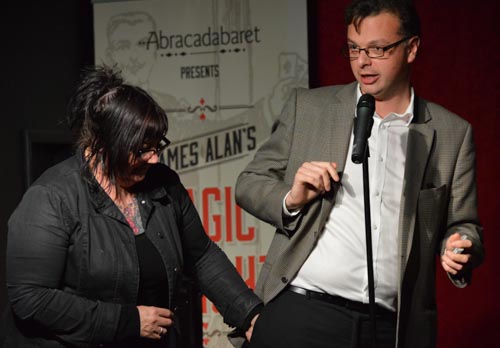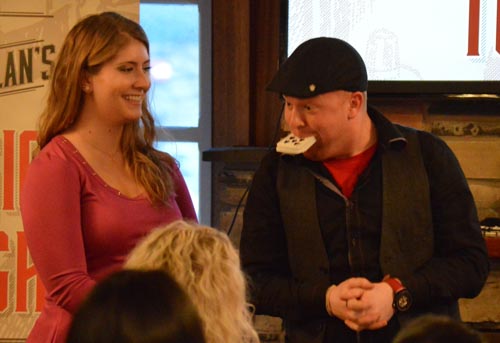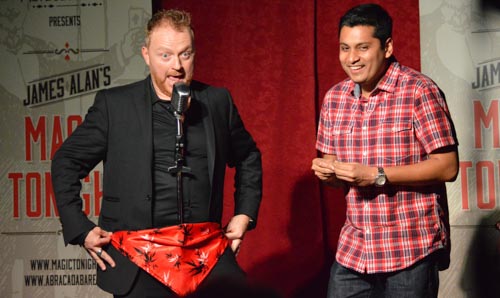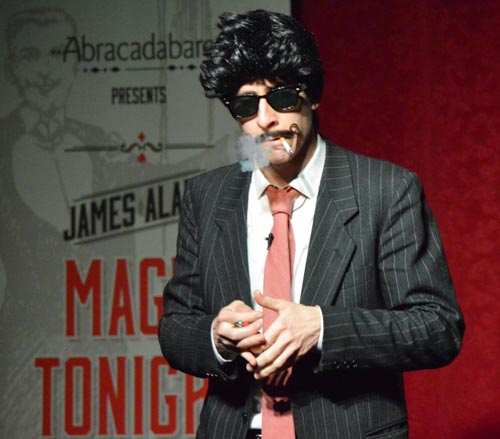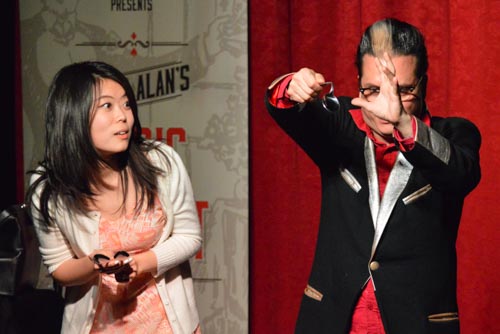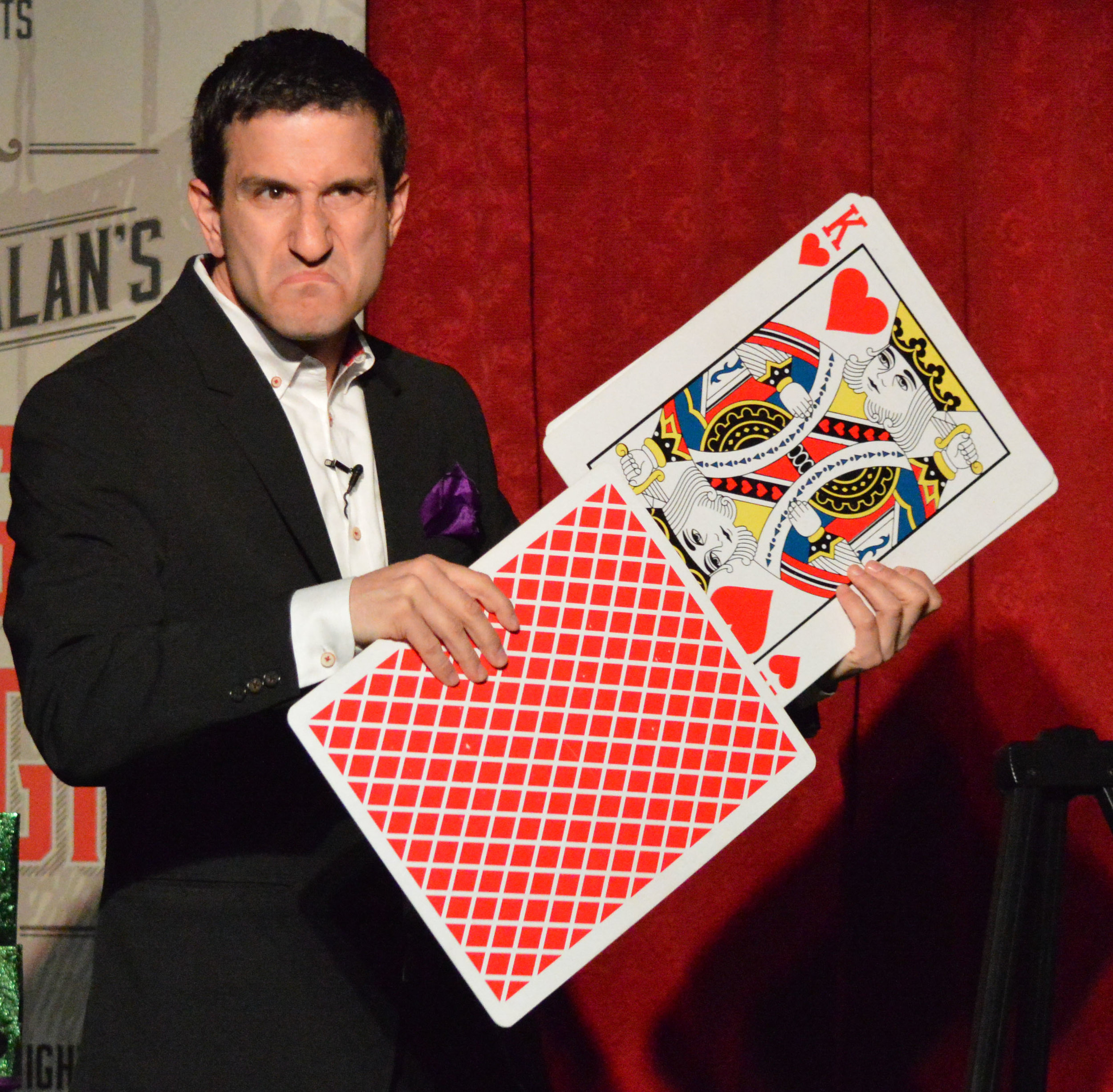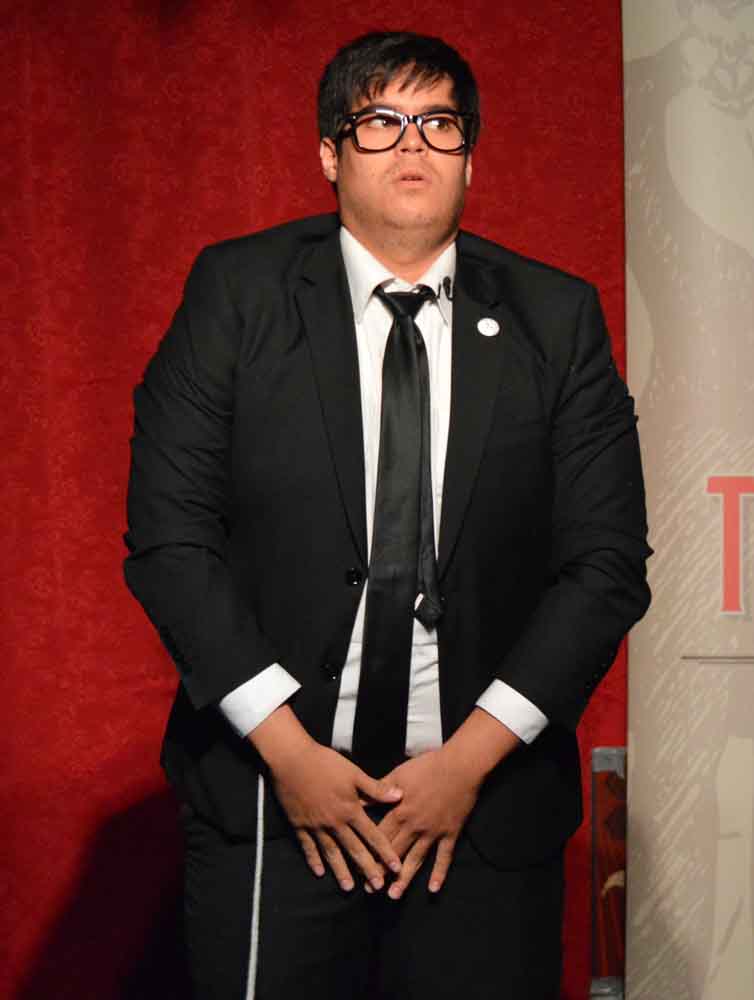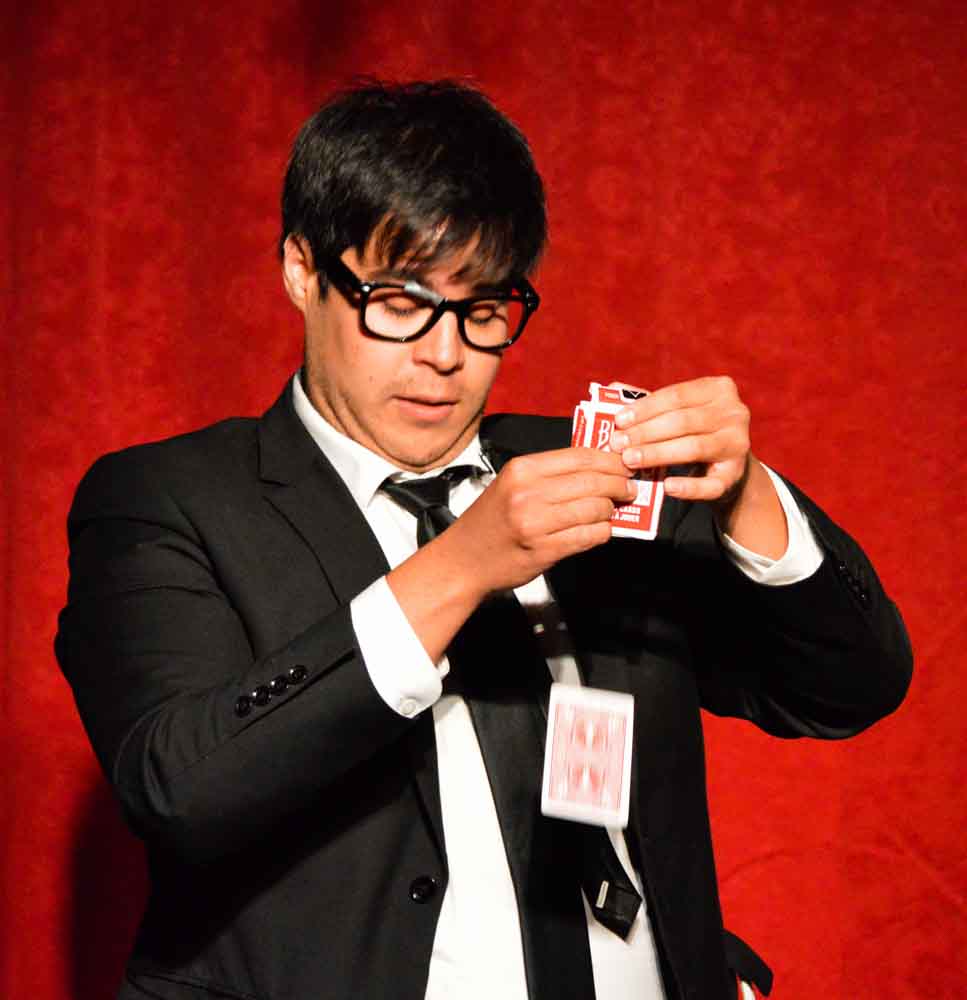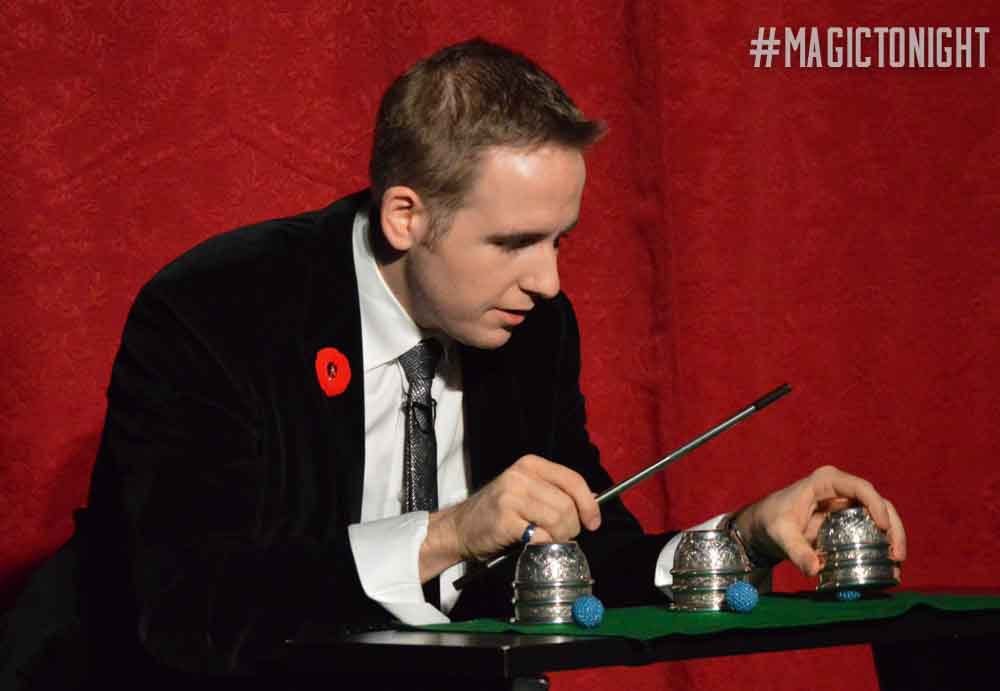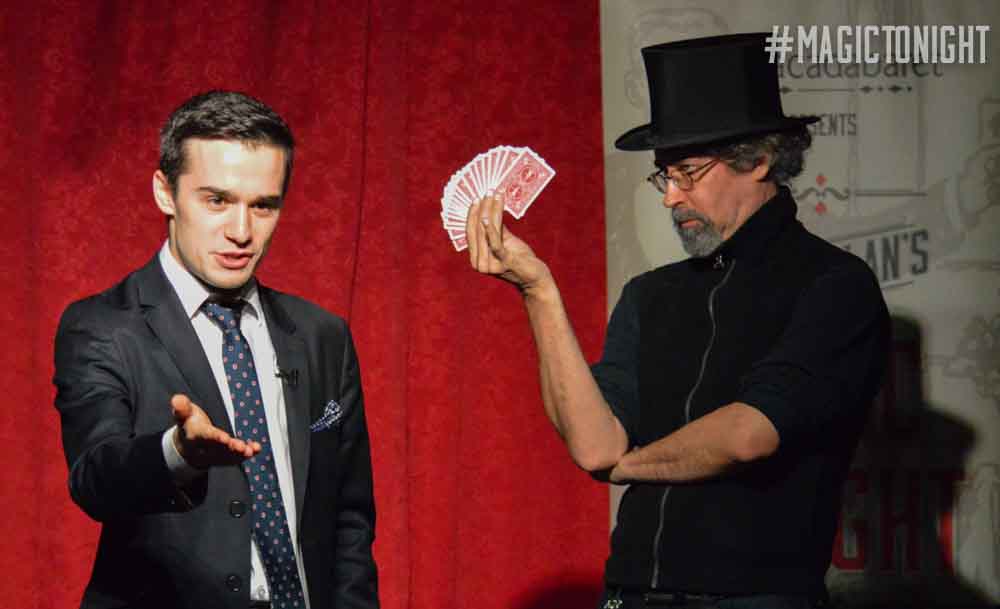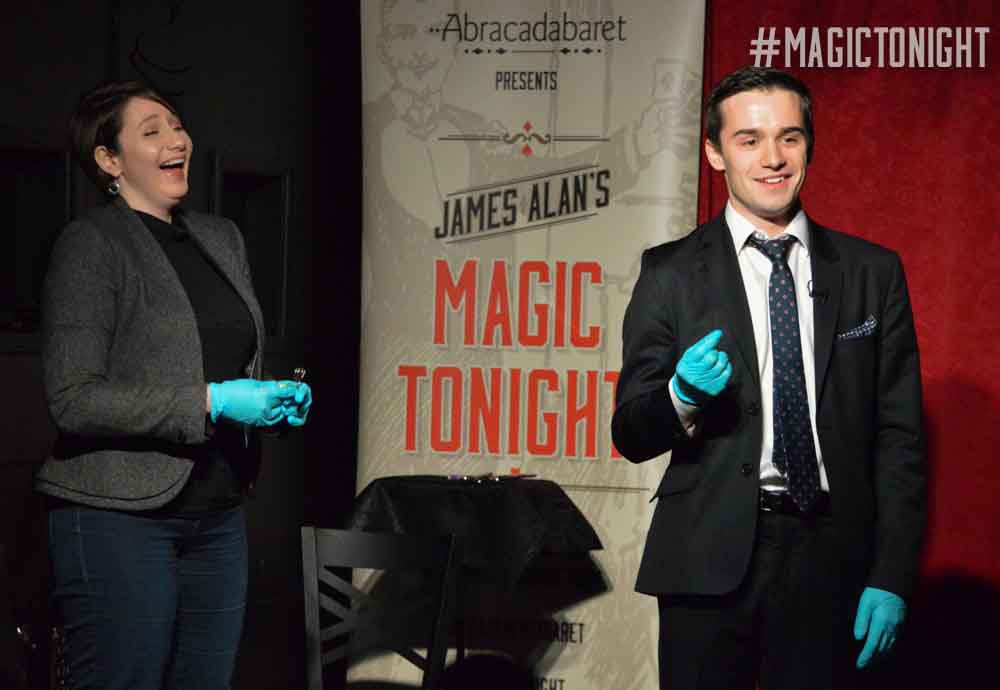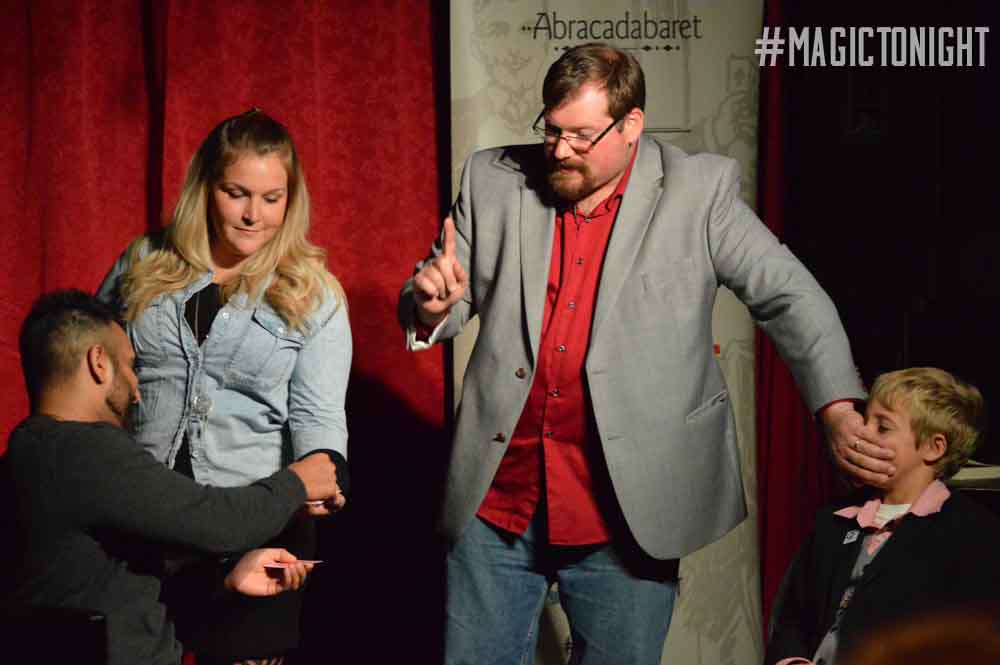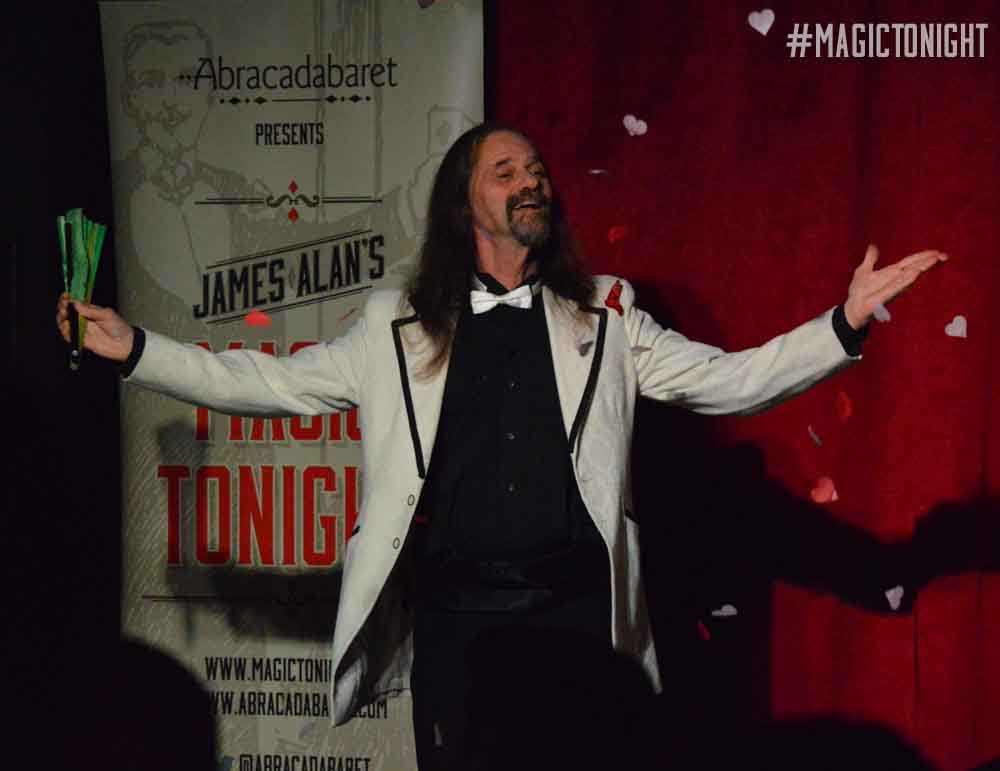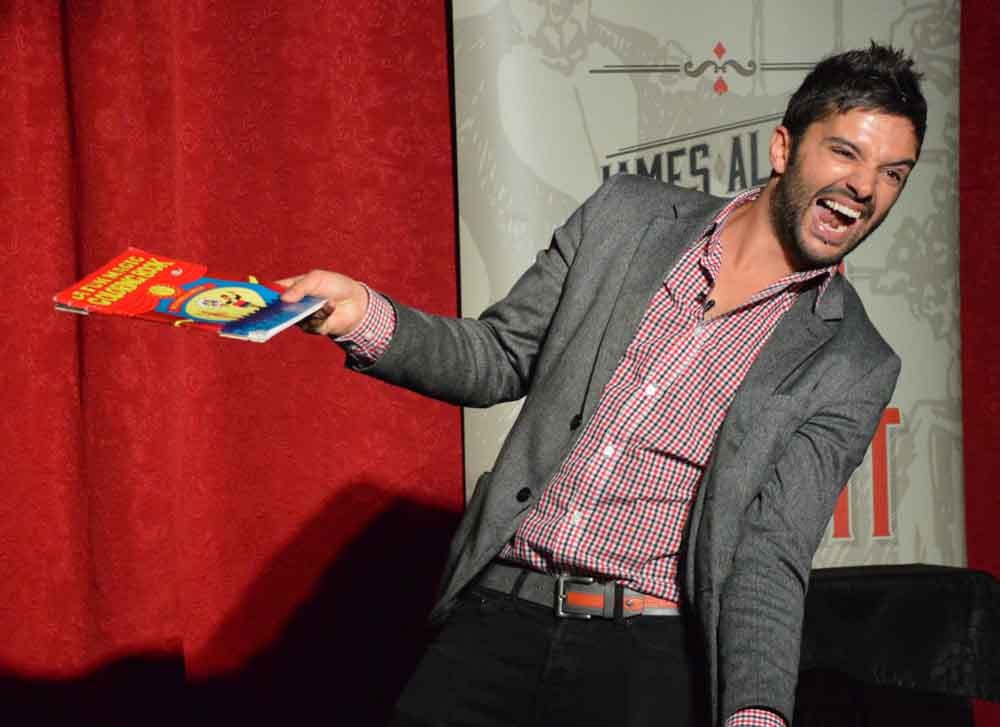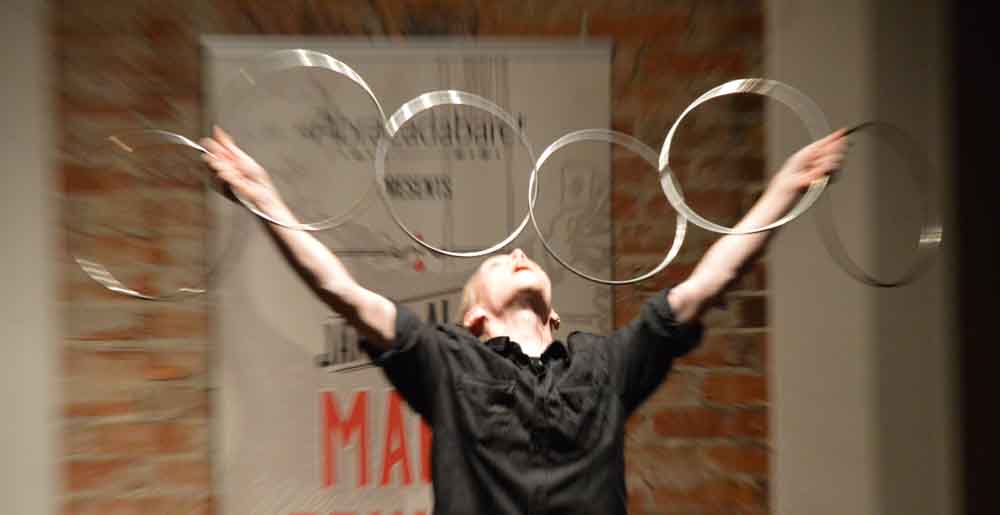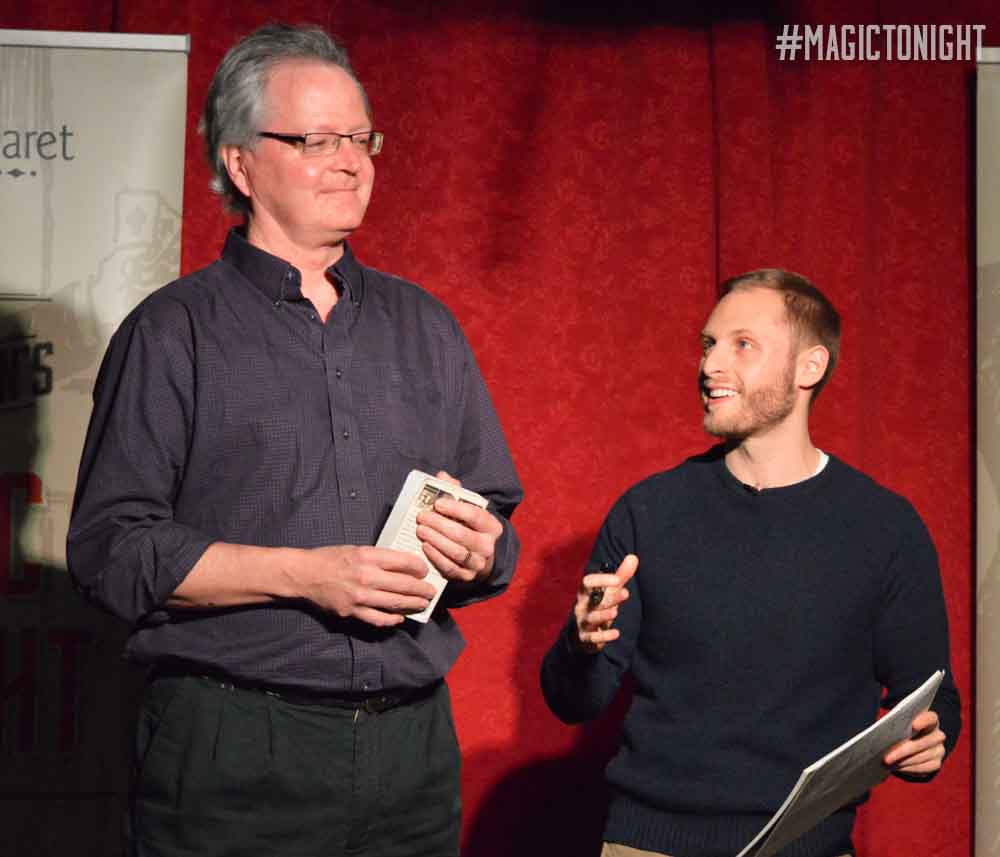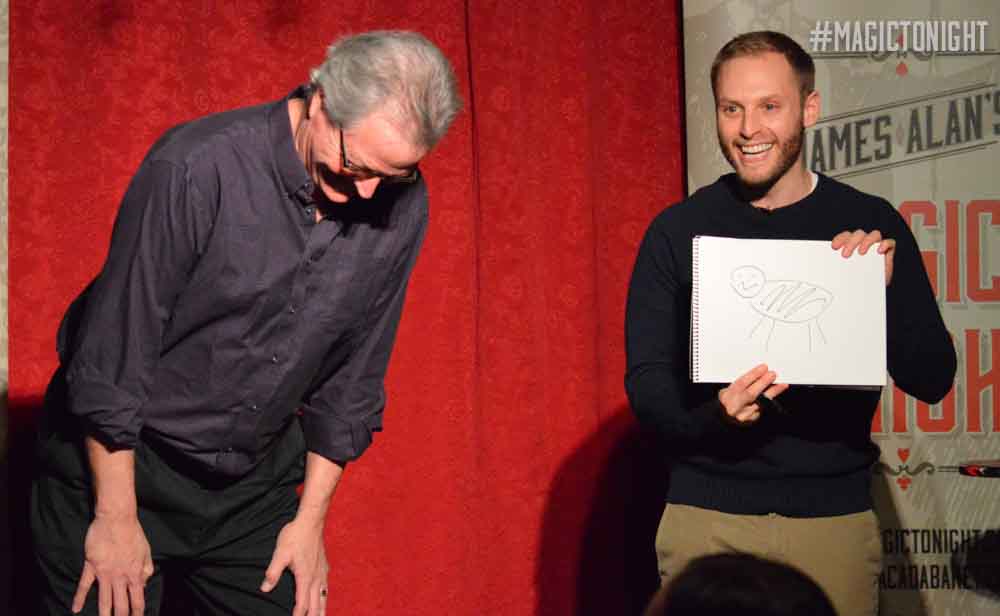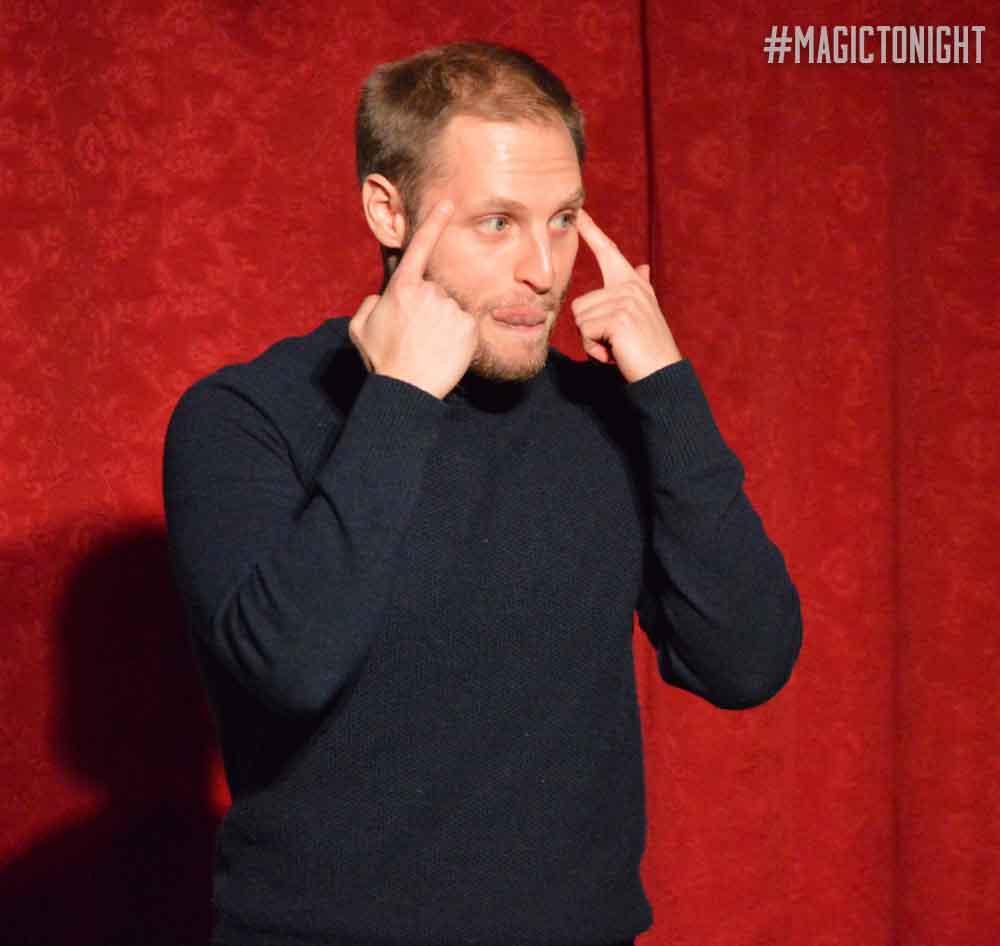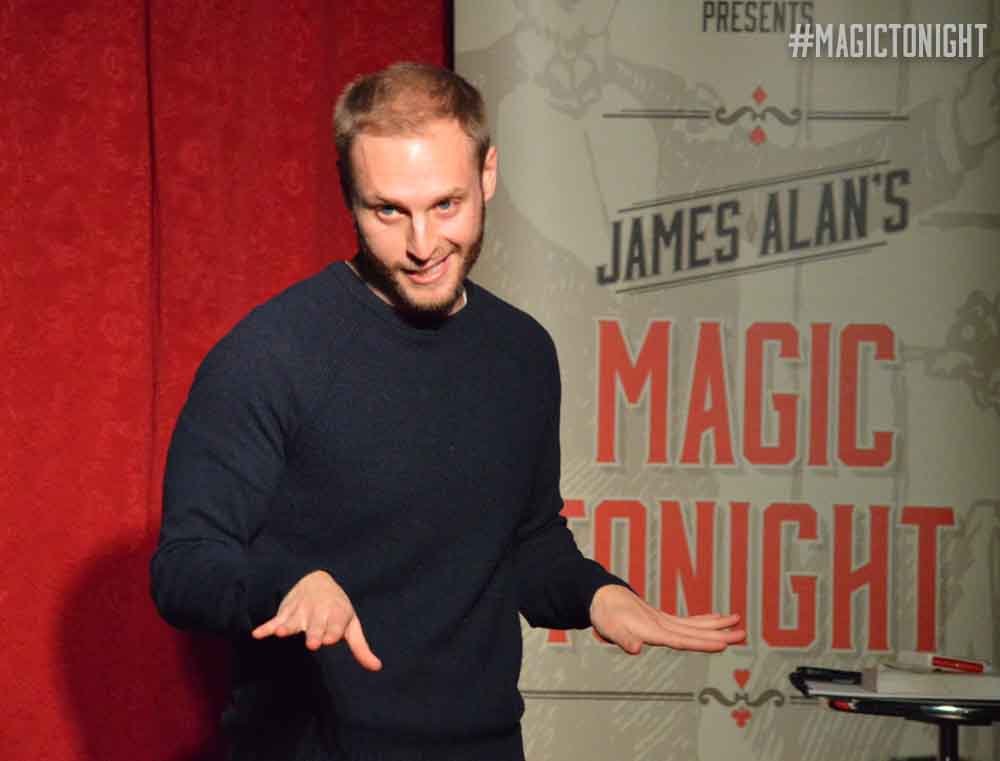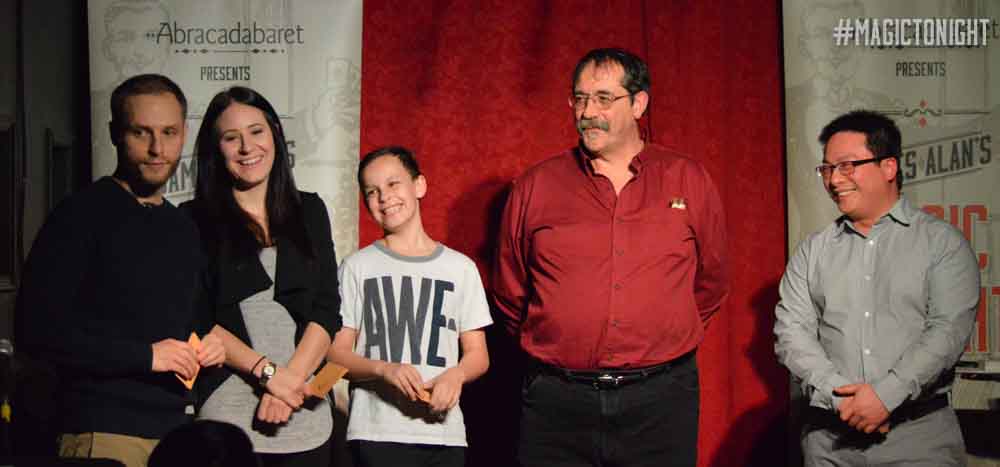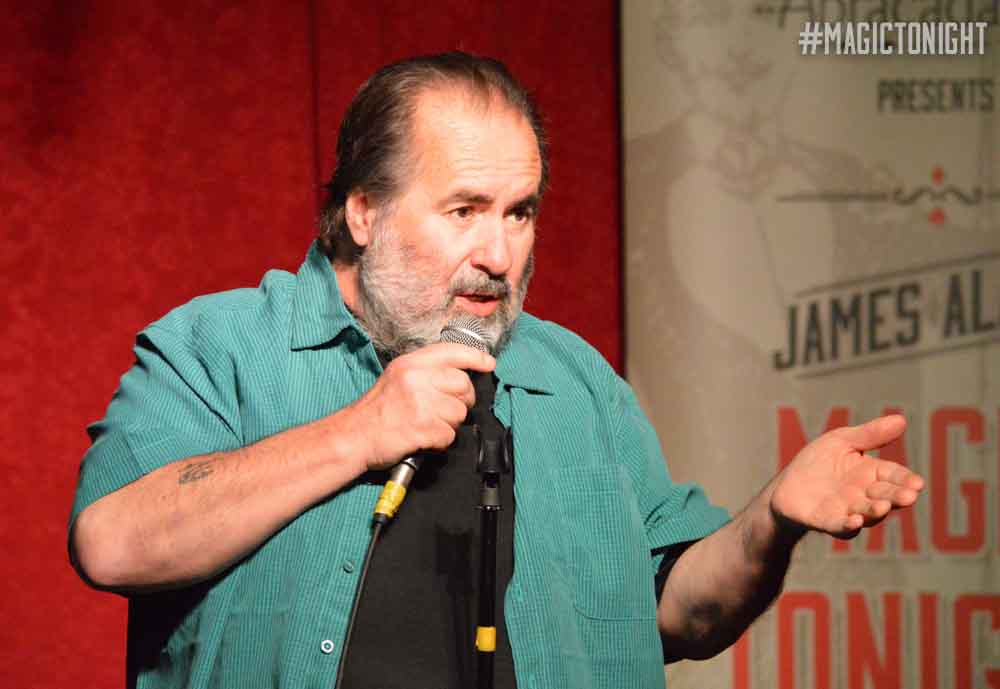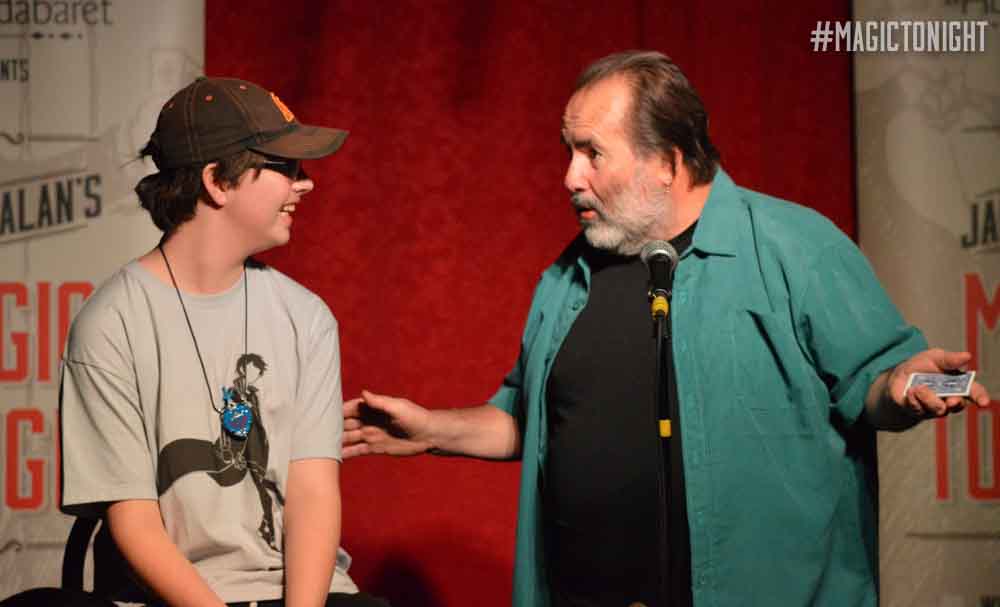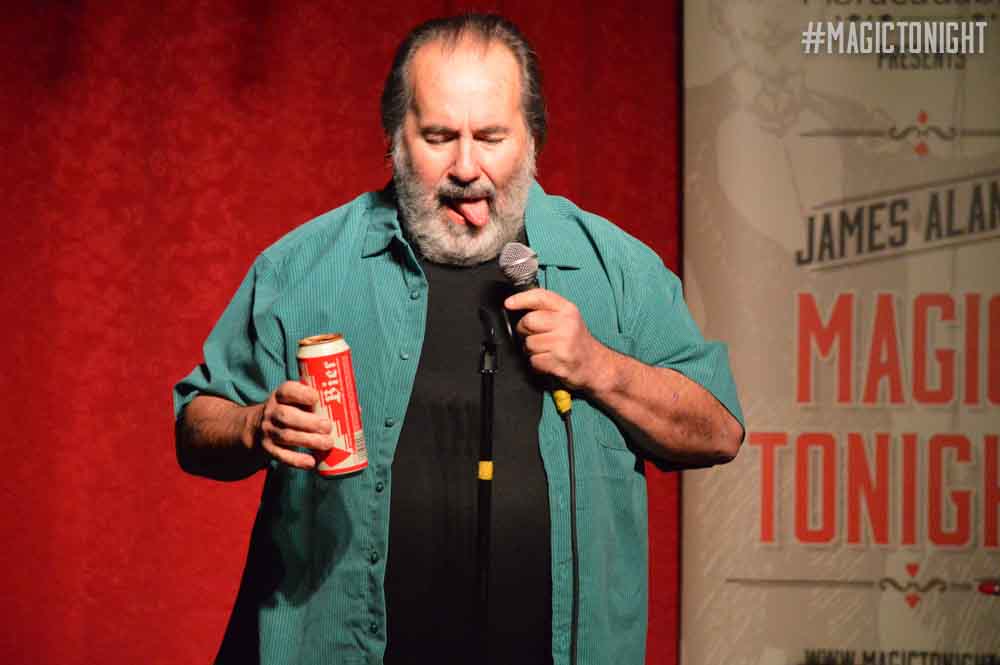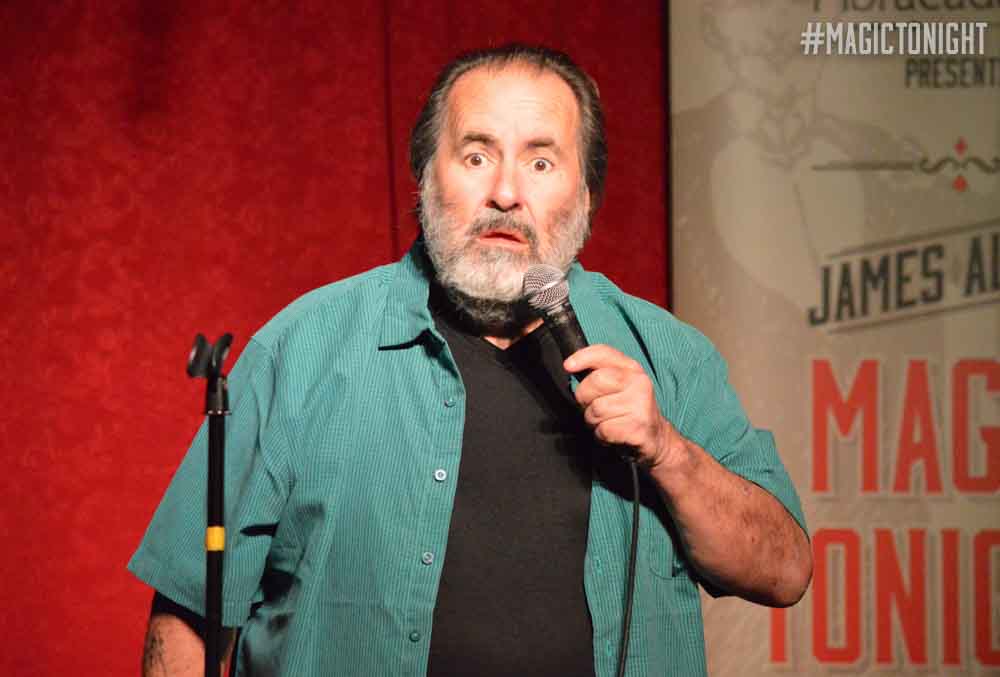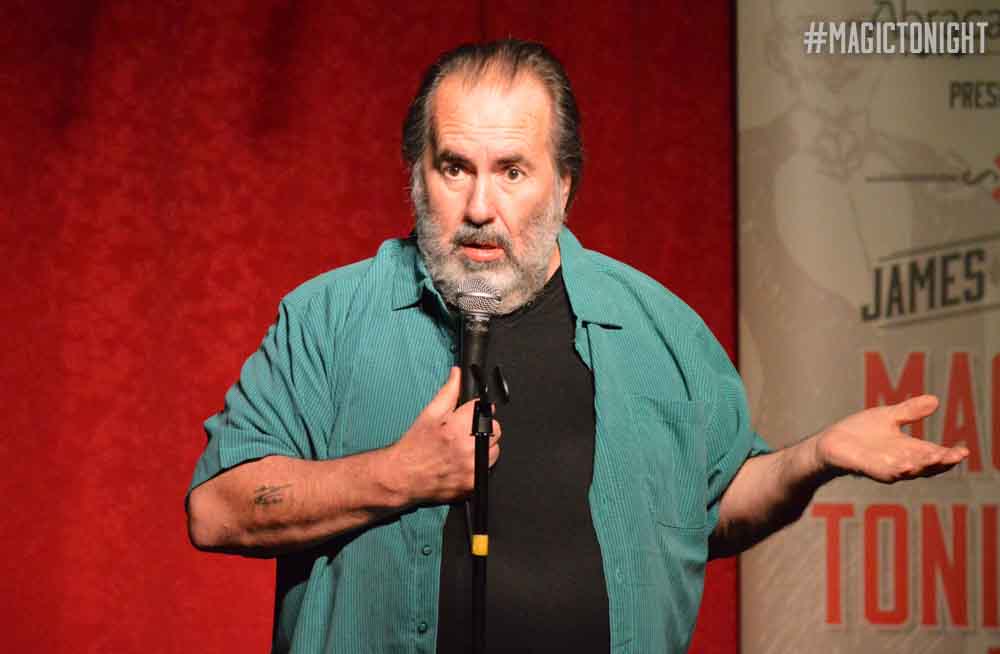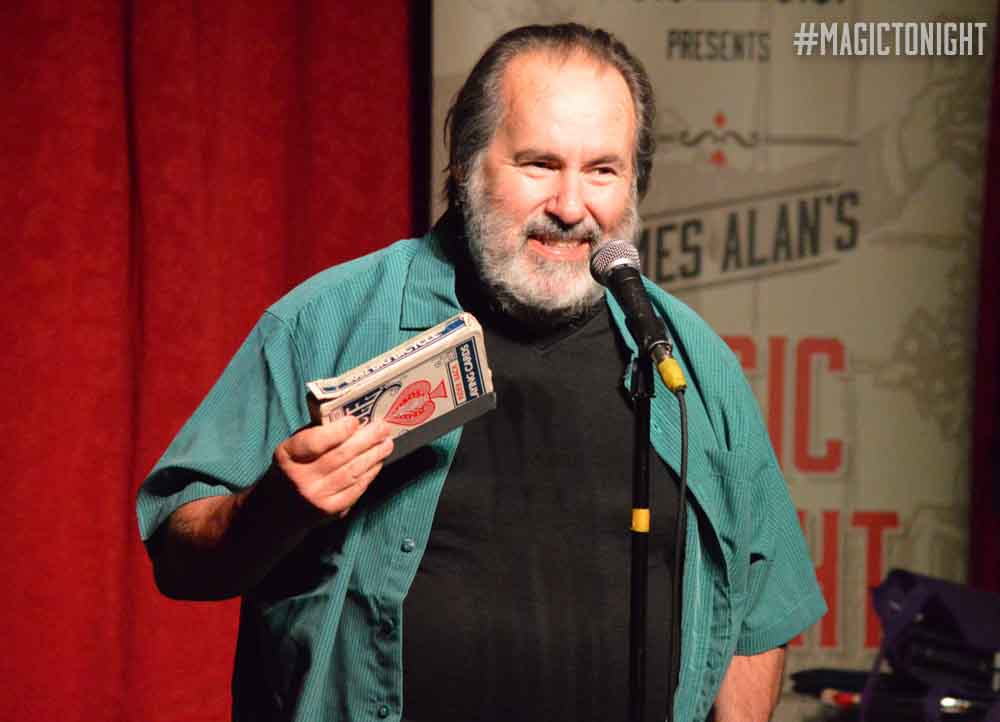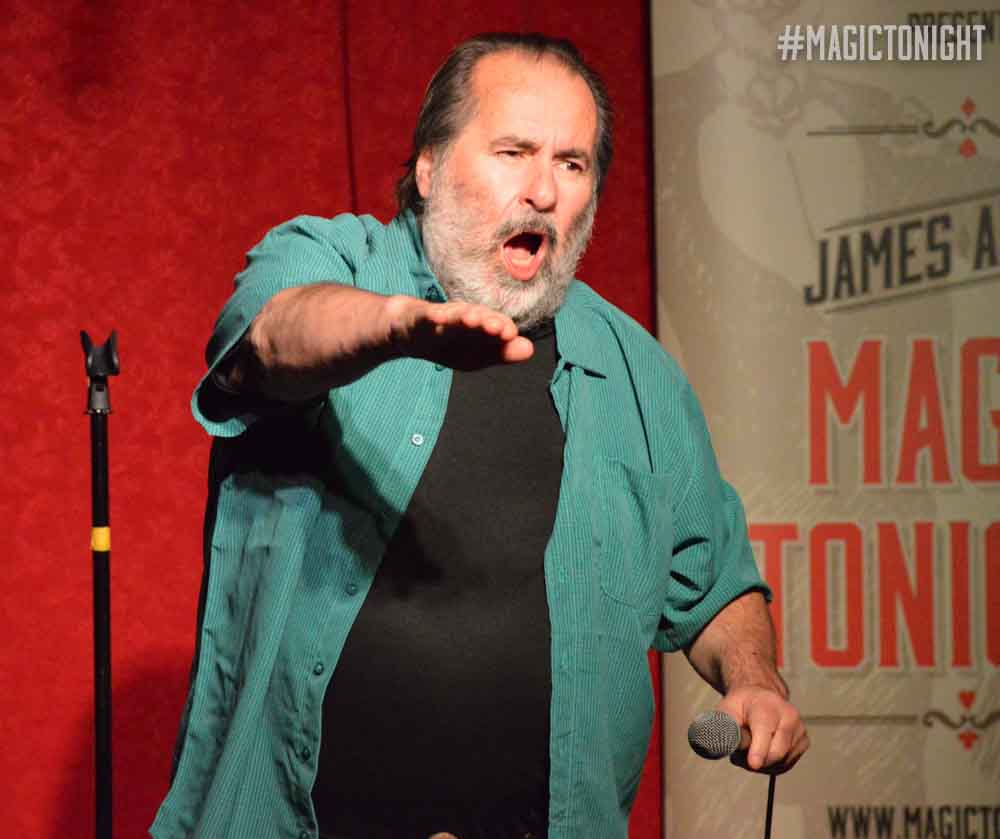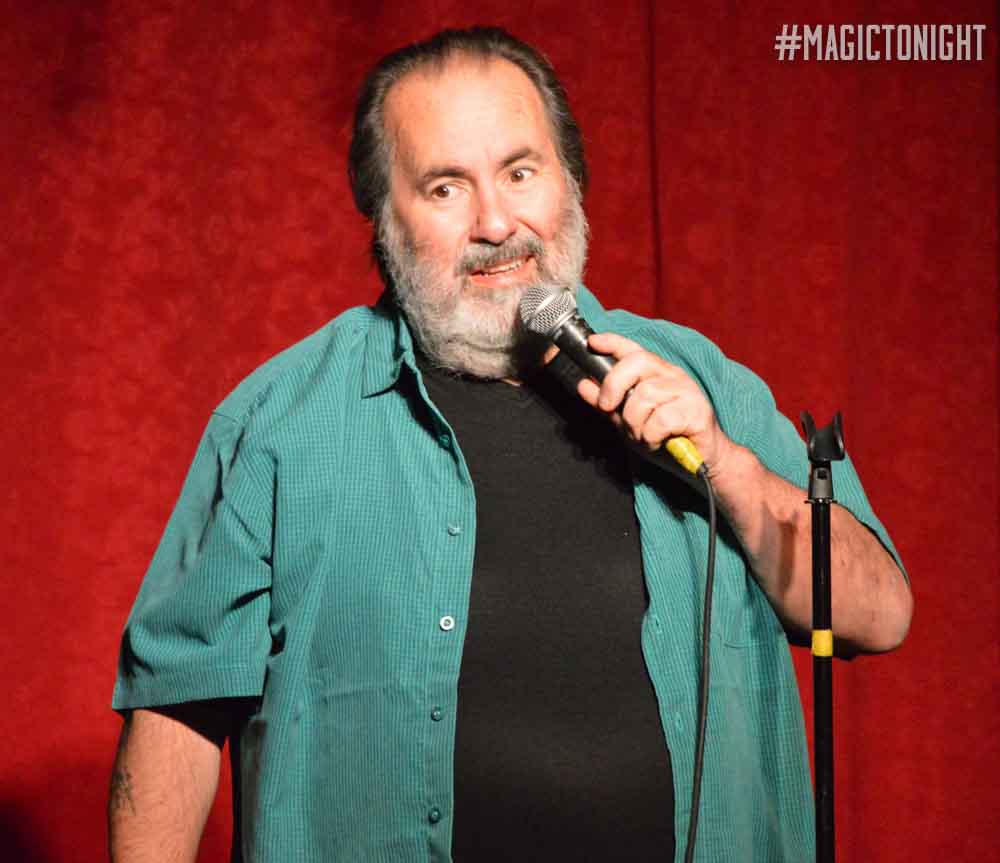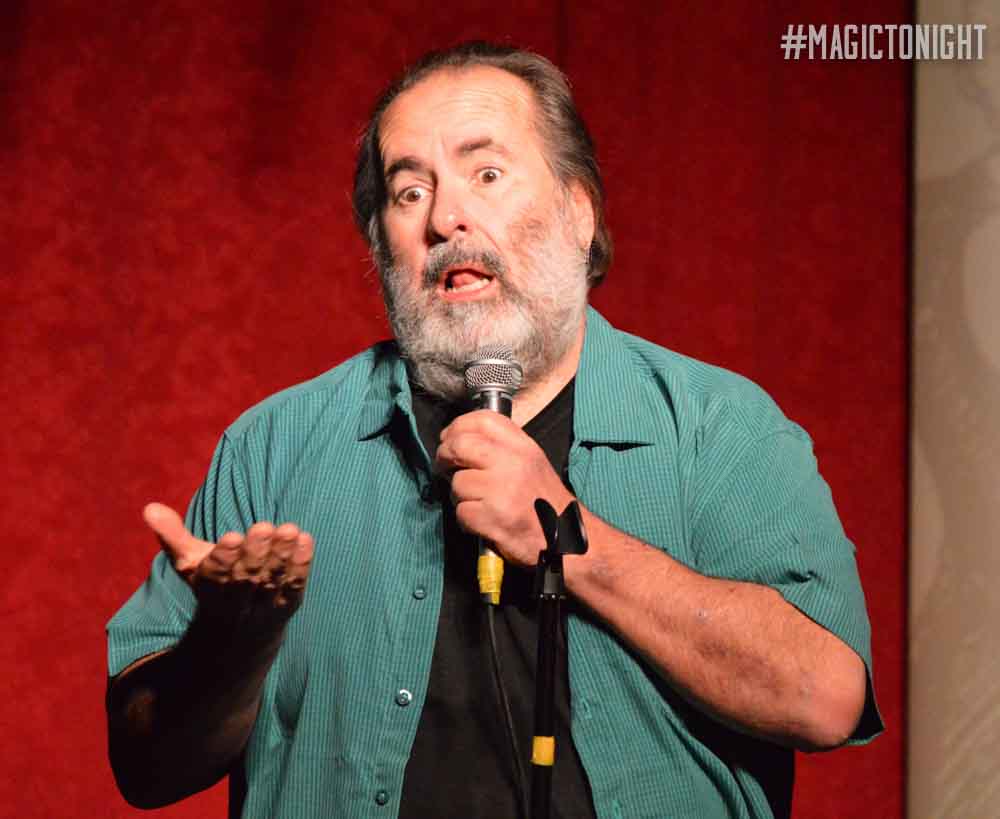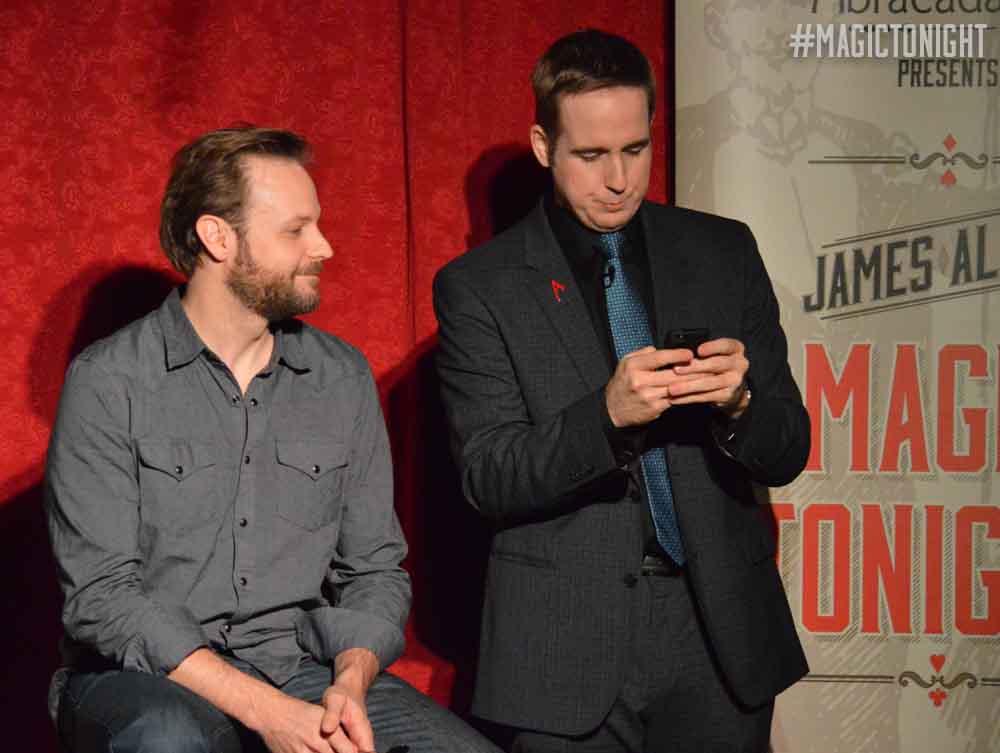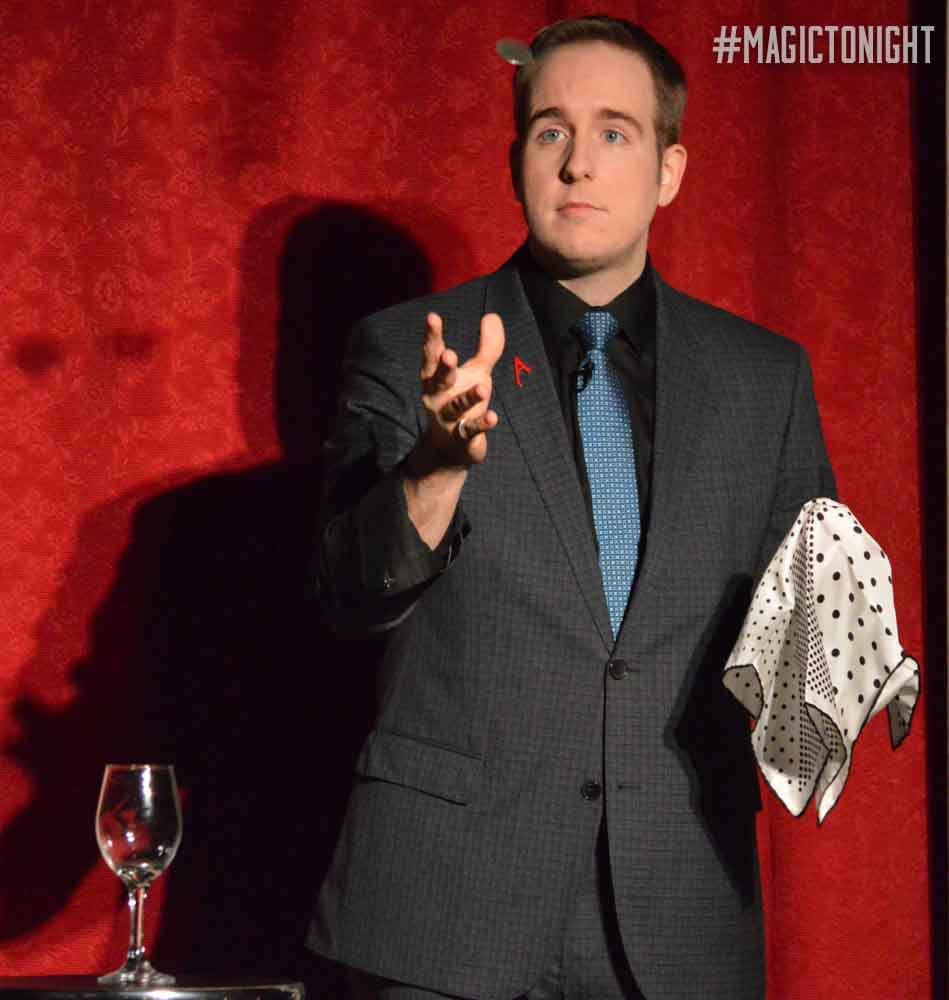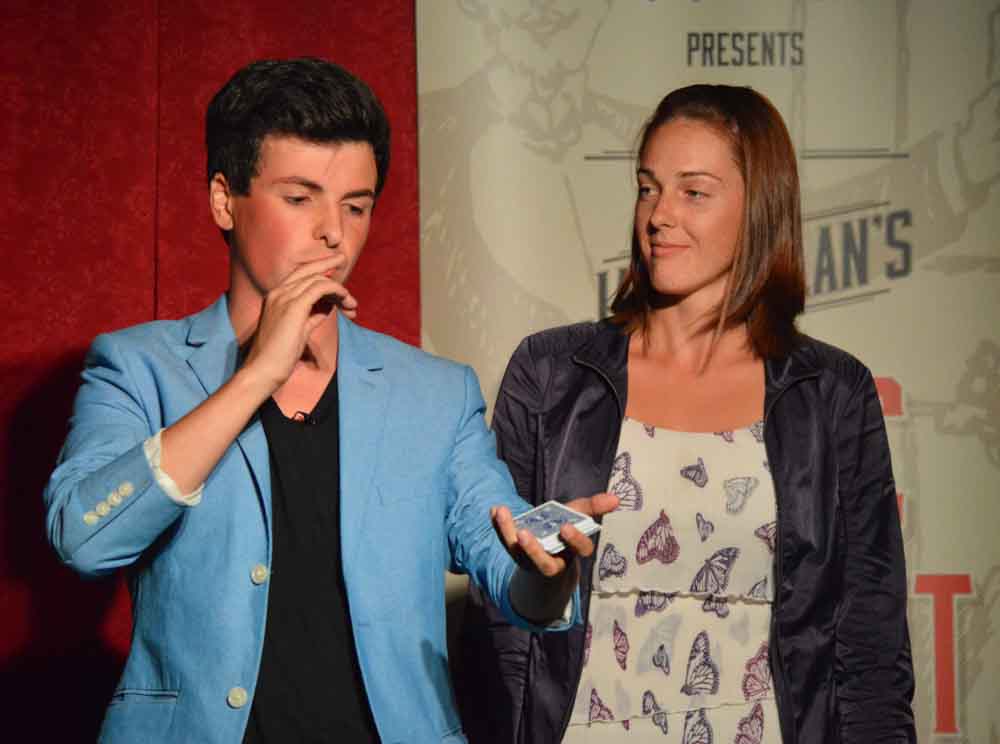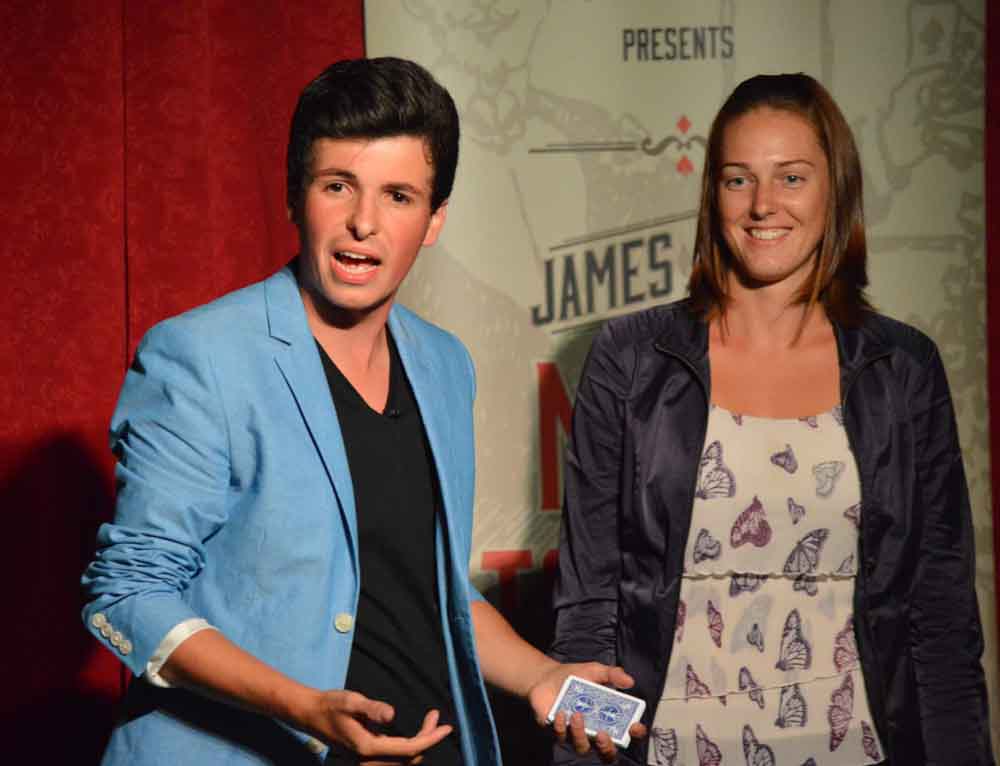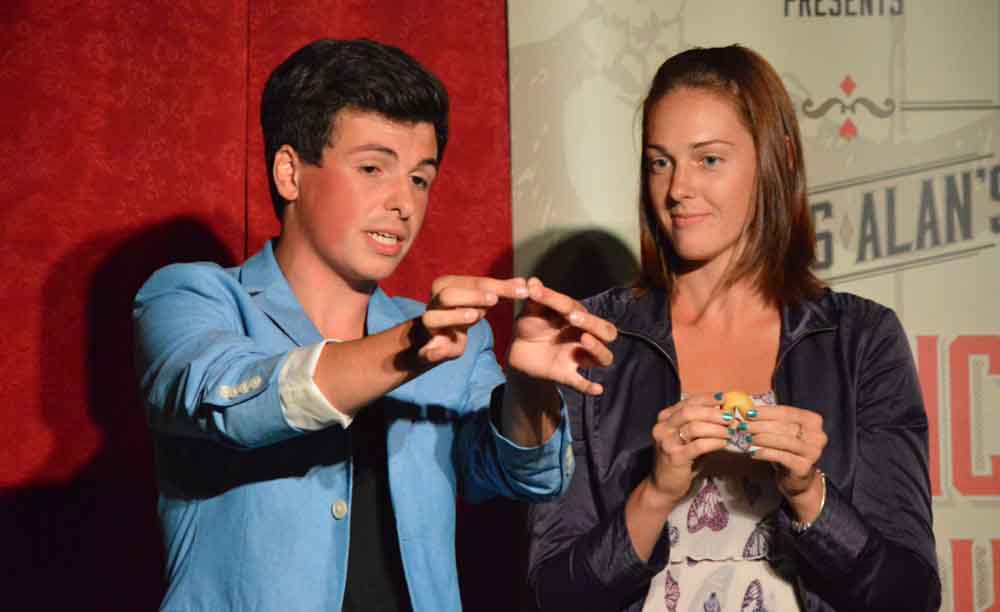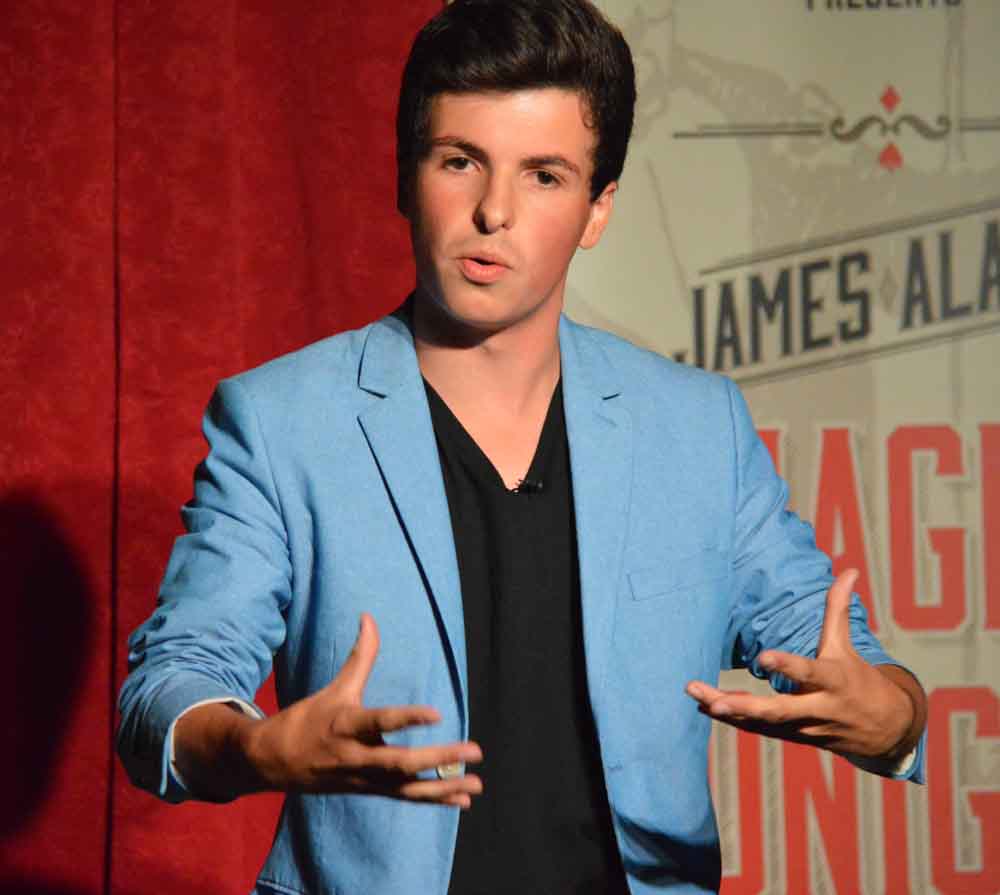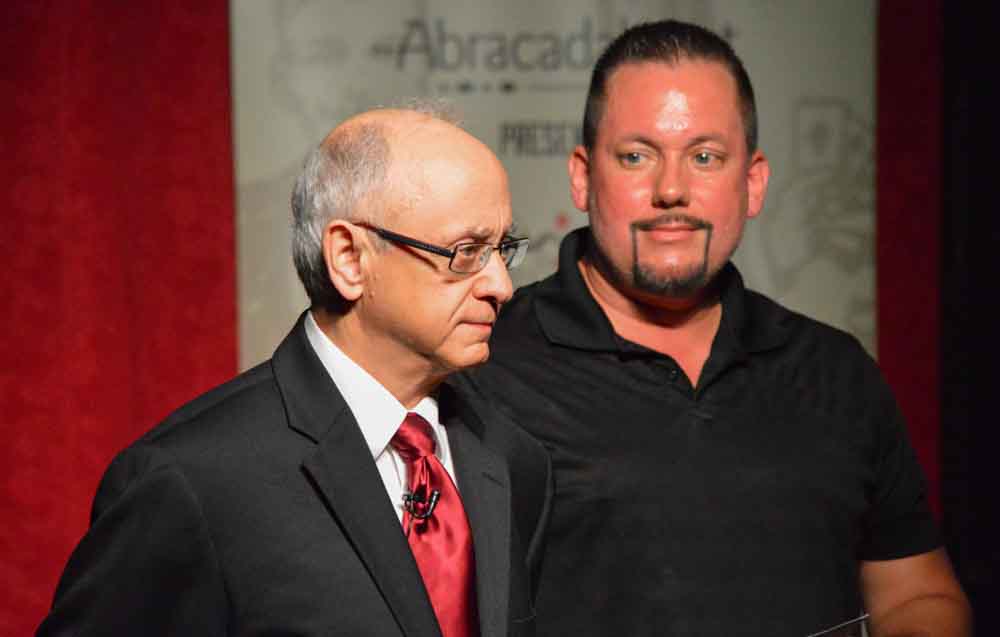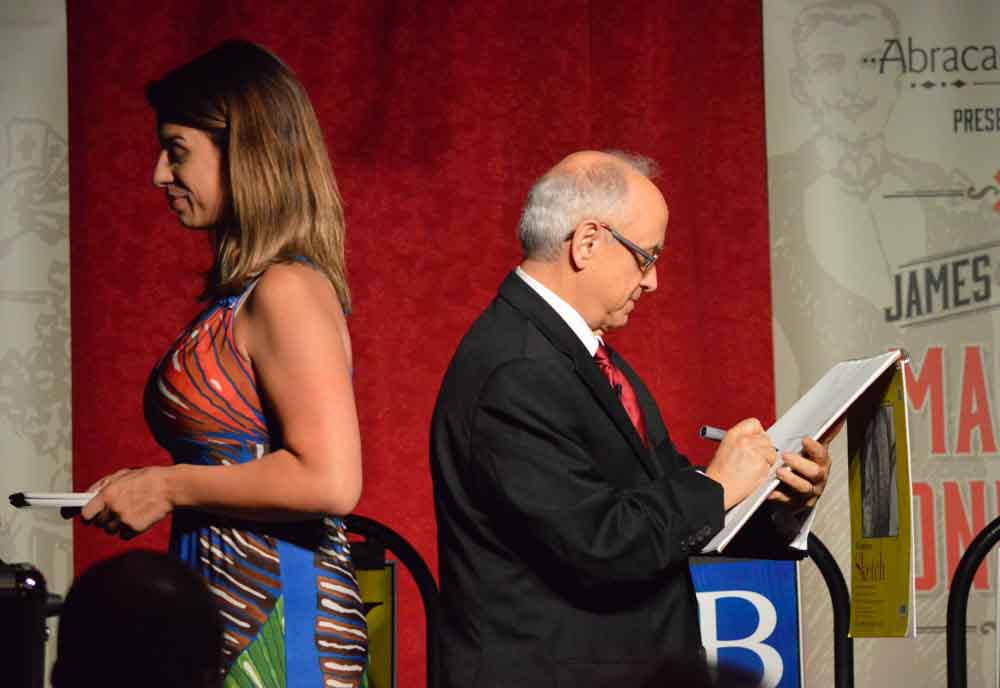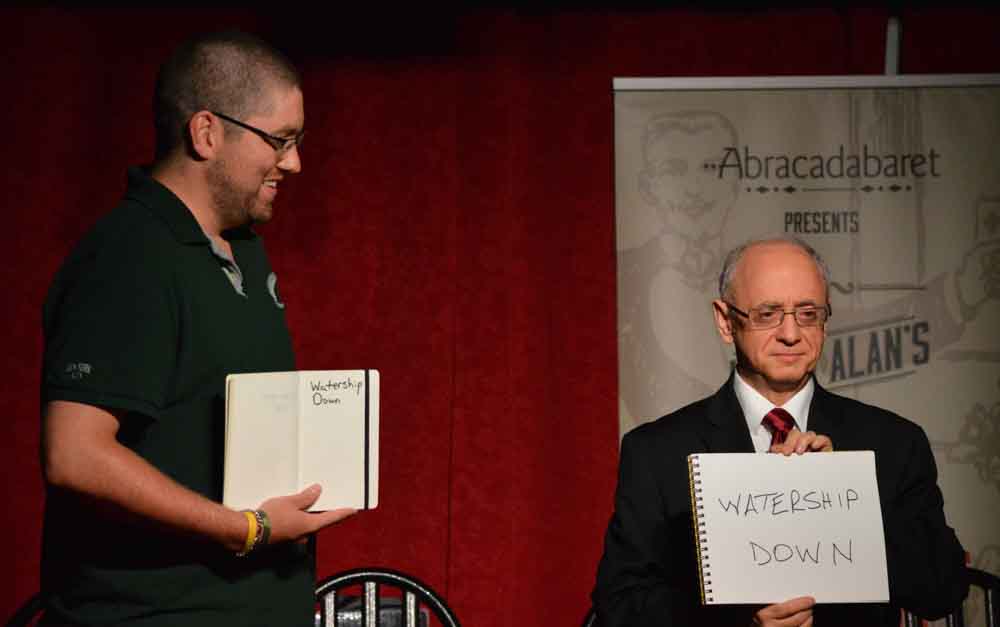Some of the fondest moments from my years performing magic have been performing magic for seniors (primarily through the Senior Sorcery program). Often they will share stories of magic from their own lives, magicians they had seen. This is magic of a whole 'nother kind.
Ethical Magicians?
I've been listening to the episode of Discourse in Magic on "ethics". The episode is an extended interview with my friend, Ben Train. The episode is over an hour long so I'm not sure how many people would be willing to sit through it. It raises some interesting points including ones with which I disagree.

Ben Train demonstrates mindreading on Magic Tonight.
I was interested in hearing the episode because while Ben and I have discussed this topic previously, I have no idea what the hosts of this program thought about it.
The episode is slightly misnamed. It's titled "ethics and morals for the modern magician" although the entire episode is focused around one fairly specific concrete example which was actually a piece of mentalism.
Mentalism is a proper subset of magic but in the past decade has undergone a kind of grass-roots rebranding. A traditional mentalist was (ostensibly) reading minds and seeing into the future. The current mentalist tends to be more of a Sherlock Holmes-style character that gathers information by making very detailed observations and spinning those tiny clues into full fledged theories about whodunnit. One of the reasons that Holmes was so impressive was that he was a fictional character and he had the benefit of an omniscient author who could secretly feed him the right answer. Similarly, the mentalist has the tools of a magician at his disposal to secretly gain access to the requisite information and most of the "observation" is just to keep up the pretences.
The ethical problem they were obsessing over was, "What happens when the audience accepts the red herring?" Ben actually gave some specific examples that I found troubling — people who saw his show and were legitimately misled into believing untrue things. At the same time, I was also surprised by the realization that in my own work, I don't have these problems at all and I couldn't explain why.
I've been a life-long skeptic, inspired at an early age by the writing of Douglas Adams and Richard Feynman, and later by Penn & Teller's Bullshit. I believe (deeply) that false beliefs are harmful and we have a moral obligation towards others not to spread them if we can avoid it. That makes performing magic problematic because a magic trick, properly executed, would seem to be spreading false beliefs; namely that something which should not be possible is. Performing magic while not being giant hypocrite is a problem which doesn't appear to have an obvious solution. That's also why I perform so little magic for children, but spend a lot of time teaching magic to them. The idea that an honestly curious young person would ask me to explain something to them and that it should be my responsibility to not do that just bugs me too damn much.
Now it's worth considering the possibility that Ben is simply not doing anything wrong. I know there are people who think that the magic they see on television is undeniable proof that demons are working through humans and that it is being covered up by the networks who are owned by the Illuminati. They are so far down the rabbit hole of wingnuttery that they are certainly beyond my ability to help. (And yes, they're real, I've had conversations with them.) But to design a show with that sort of person in mind would be to lose all perspective.

Ben Train demonstrates advanced Mindreading
But there is probably more to it than that. This specific example is problematic because it implies, at least to some extent, that what is being performed is based in science. The label of science is what cranks and frauds reach for to gain credibility. You're relying on the audience's ignorance of science to justify your practice. For my own personal morality, that is a line I choose not to cross, and I don't perform any material in this vein.
This tradition is not exactly new. Magicians have used science as a cloak for their work for over a century. Jean-Eugene Robert-Houdin would claim he could make his son float by drugging him.
There are (at least) two ways around the problem, both of which they danced quite close to on the podcast. The first example they brought up was Captain America. Why is it that people are able to see Captain America without becoming concerned about the black market for Vibranium? Moreover, why can't we bring our audiences to the same place?
Performers seem to have an inner shut-eye charlatan which is desperate to convince people that what they do is real. Not only do I have to read minds, I have to make it "believable" — whatever that might mean. Looking at the example of Captain America, it's possible to realize the obsession with realism is misplaced. In order for something to be interesting, engaging or astonishing, it is absolutely not necessary for it to be real. In one of his Stanford theoretical physics lectures which he had facetiously dubbed "Quantum Mechanics for Old People", Leonard Susskind said, "I never use the term real. I find it very misleading."
You can get much more mileage by demonstrating something which is apparently supernatural and having faith (!) in the audience not to start a religion around you, than you can by demonstrating the same phenomenon with a pseudo-scientific explanation.
Part of that is simply having an attitude of respect for my audience. This comes from the other subject they briefly touched on: Penn & Teller. They follow in the "honest liar" tradition along with performers like James Randi. There is deception, but there is (confusingly) no attempt to hide the existence of the deception. When watching them, there is no pretence of trying to convince you of anything. [1] They know cool things, you don't, that makes this interesting.
Unfortunately, we get in the habit of underestimating the audience. This stems from a time when we were younger. Most magicians start out primarily performing for children. When you're surrounded by five and six year olds, it's not hard to be the smartest person in the room. But I've seen many people carry that attitude over to their adult audiences. I try and take the opposite approach and when I walk into room and assume that I am average or, more specifically, that half the room is smarter than me.
When someone is watching me do magic, I assume (possibly out of courtesy more then an actual evidence) that this person is scientifically literate and know some basic facts about the universe (magic is not real, astrology is bullshit, the dead to not return as ghosts to help with card tricks). I never have to say anything, but if by nothing other than subtext, I can get that across, that frees us up to enjoy the incredible things which happen without obsessing over fake causes. And if someone really wants to know how I learned any of this, I tell them.
Ethics are extremely important in magic. We do walk a fine line. Lying for money is never easy.
[1] When not convincing people that Teller is the Saviour of all synthetic fabrics.
Last week on Magic Tonight
Magic Tonight continues Sunday nights at the Crimson Lounge in Downtown Toronto. Readers of this blog can use the code reality for a discount on the price of tickets and dinner when booking online.
Magic Tonight 2015
As 2015 comes to a close, I flipped back through our photo gallery from Magic Tonight. This year we did 85 shows (at least that's the number we have photos from. We may have skipped a couple.) This would not have been possible without the venues who graciously hosted us - The Crimson Lounge, The Bear and The Franklin House! I also need to thank the performers who appeared for us, in alphabetical order:
Bill Abbott, The Irritatingly Photogenic Keith Brown, Ryan Brown, Michael Close, Joe Culpepper, Matt DiSero, Michael Feldman, Ron Guttman, Ken Margoe, Chris Mayhew, David Merry, Zach Mirza, Bobby Motta, Mysterion, Glenn Ottaway, Paul Pacific, Jason Palter, Jenny Parsons, David Peck, Phil Pivnick, Steve Reynolds, Brian Roberts, Lukas Stark, Rob Testa, Ben Train, Jason Verners, Nicolas Wallace, Chris Westfall, Wes Zaharuk
But most importantly, our thanks to our audiences; the (literally) thousands of people who came out to see us perform. This would not have been possible without your interest and support.
So enjoy a little look back at 2015:
(or watch the slide show on YouTube)
Magic Tonight continues in 2016. Readers of this blog can use the code reality for a discount on the price of tickets and dinner when purchasing online.
Last time on Magic Tonight
Magic Tonight continues in 2016. Readers of this blog can use the code reality for a discount on the price of tickets and dinner when purchasing online.
Last week on Magic Tonight
It was a show that came from both ends of the spectrum on Sunday night at the Crimson Lounge: Jason Verners is probably the youngest performer we've ever had on the show and Ron Guttman has been reading minds since before either of us were born. We had lots of fun and we need to thank our sold out crowd... in particular the two ladies who took a special interest in the contents of my pockets and weren't afraid to show it.... We're continuing on with tickets available for our shows through the end of September. See who's performing on our site in the coming weeks. Readers of this blog can use the code reality for a discount on the price of tickets and dinner when purchasing online.


